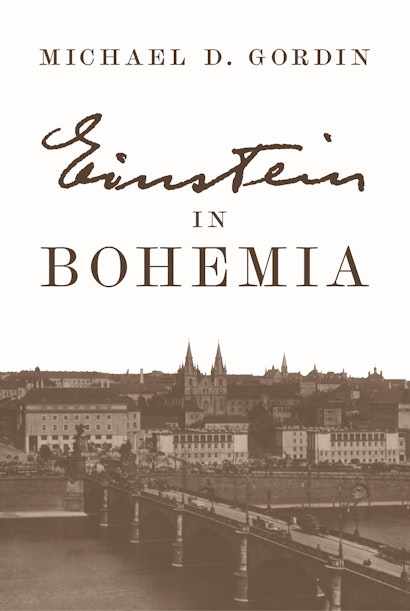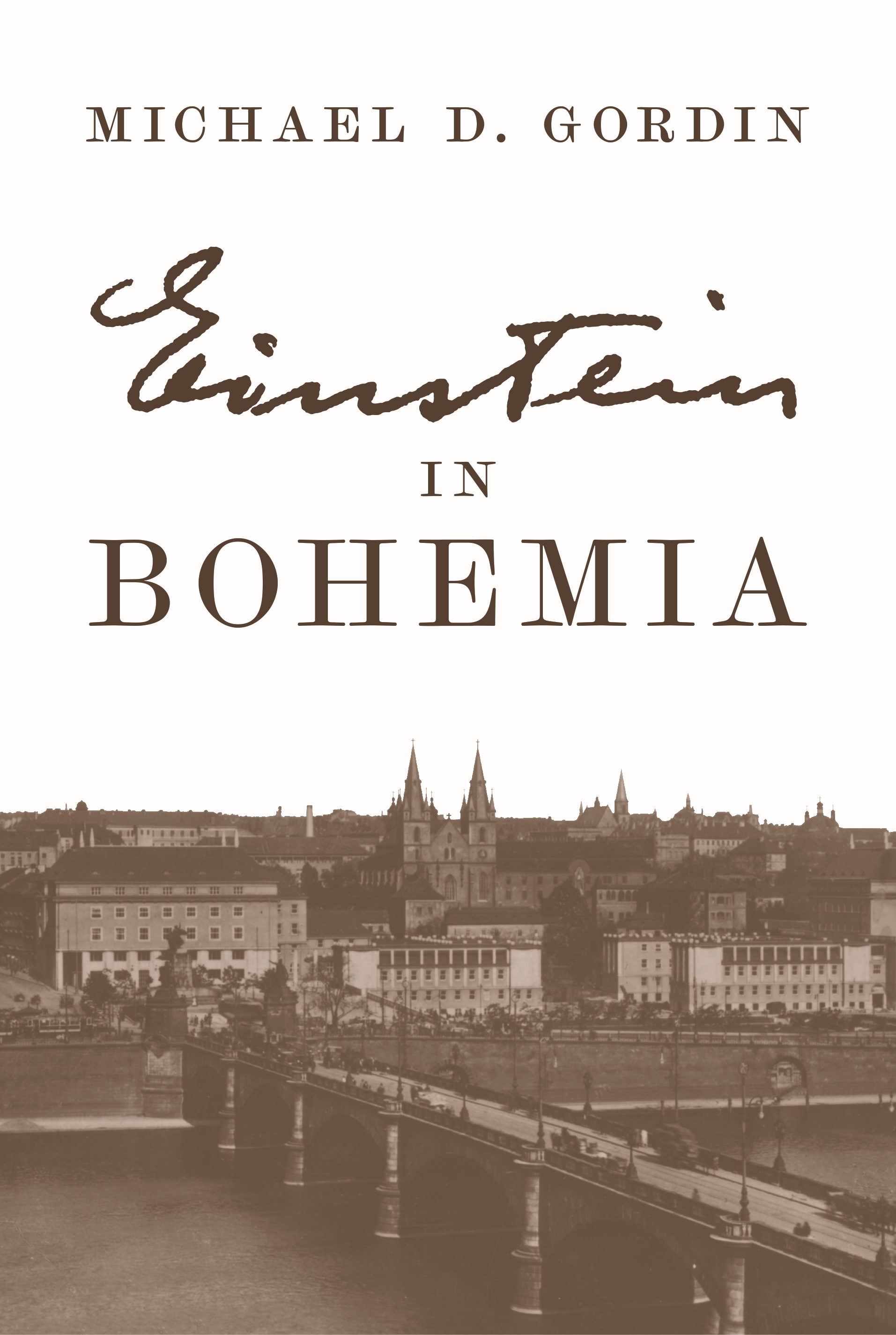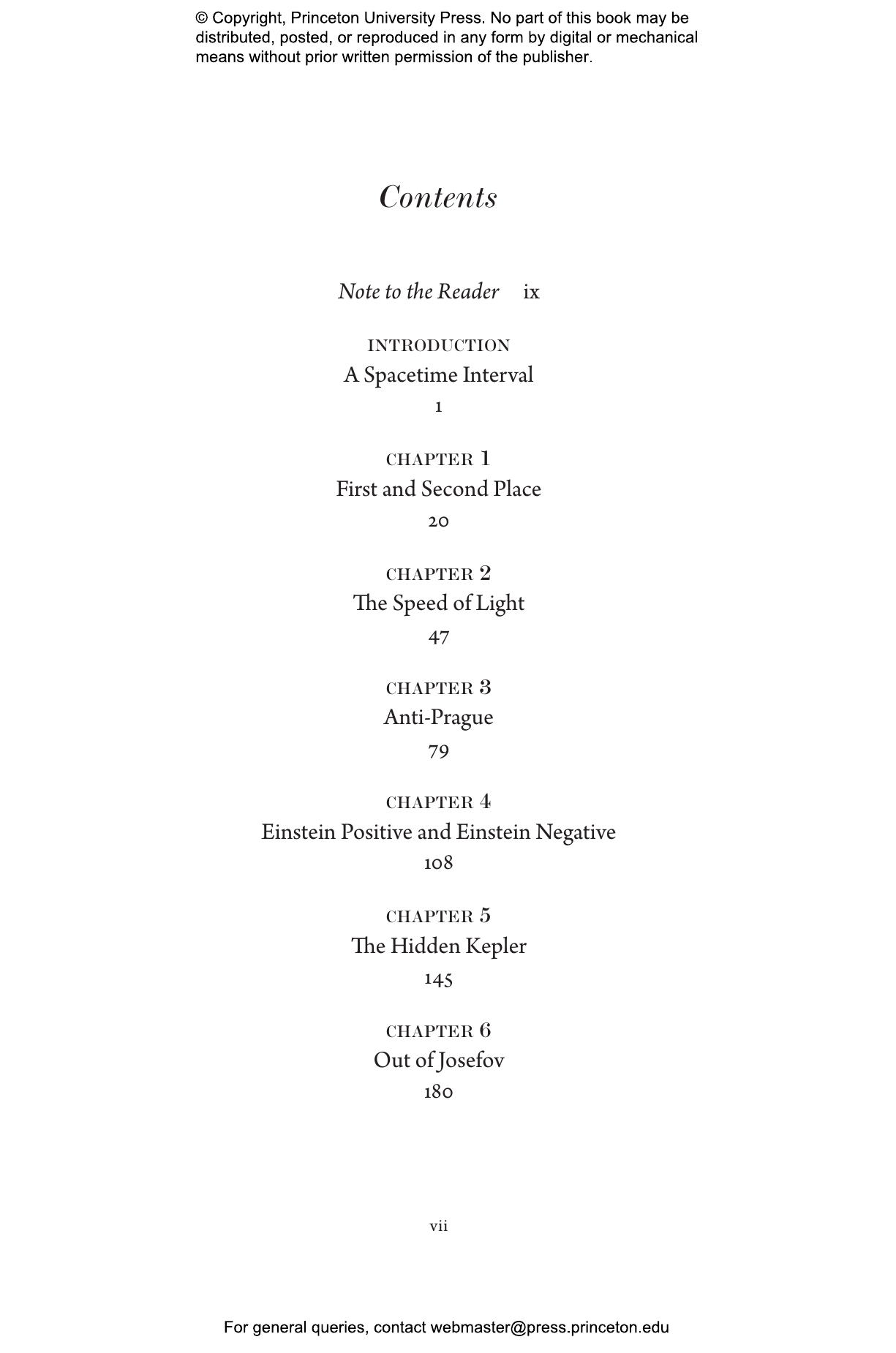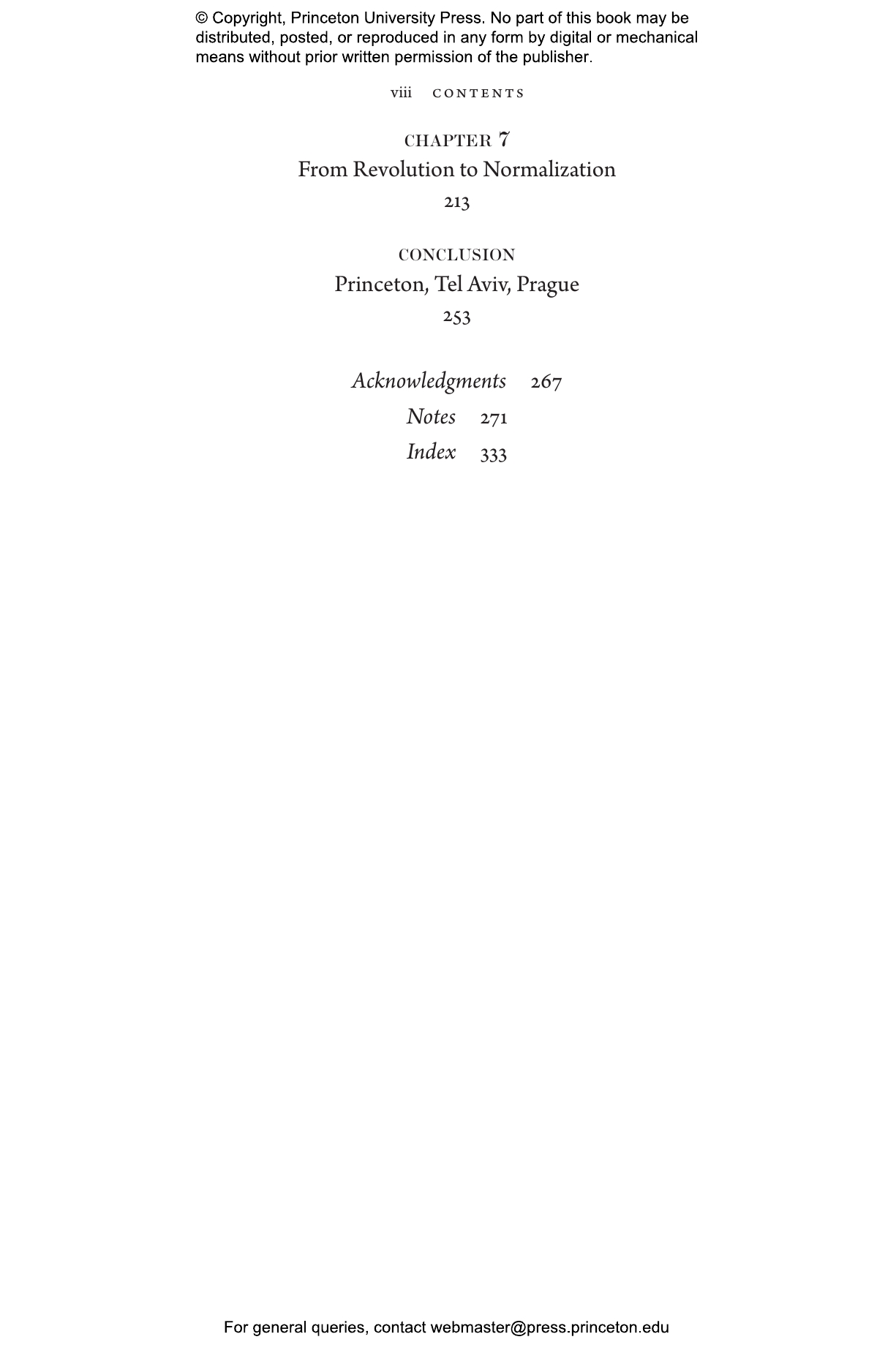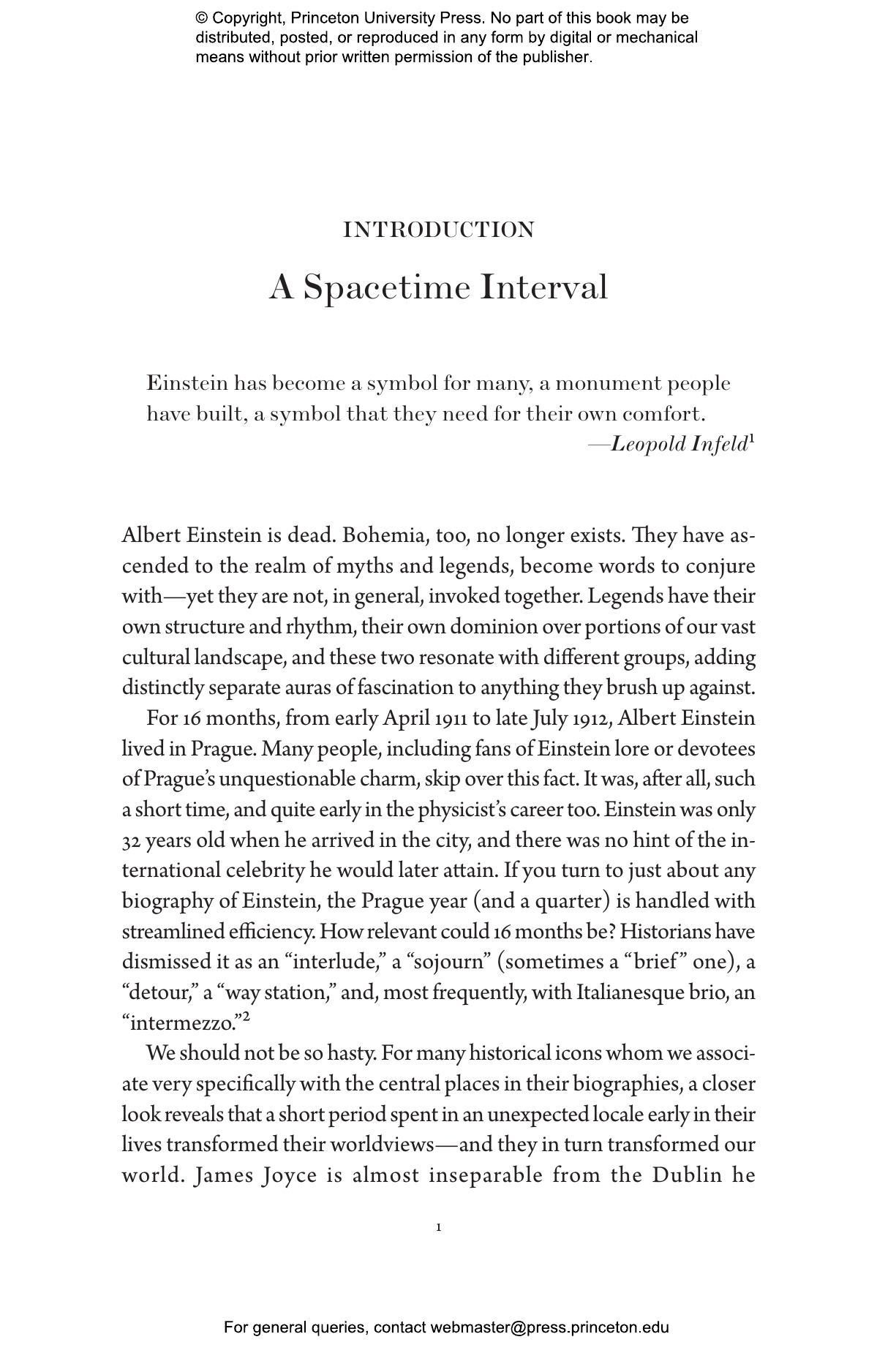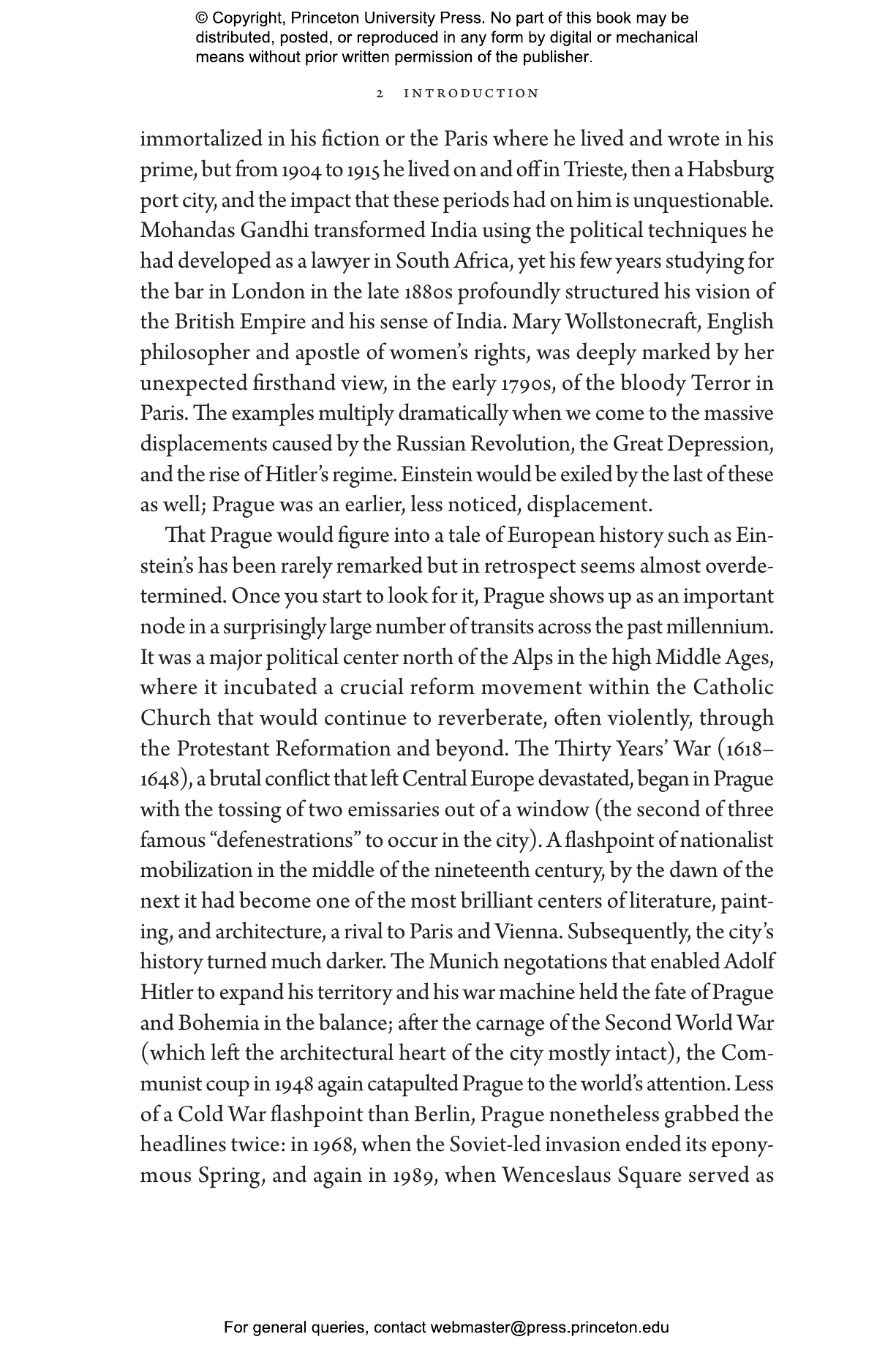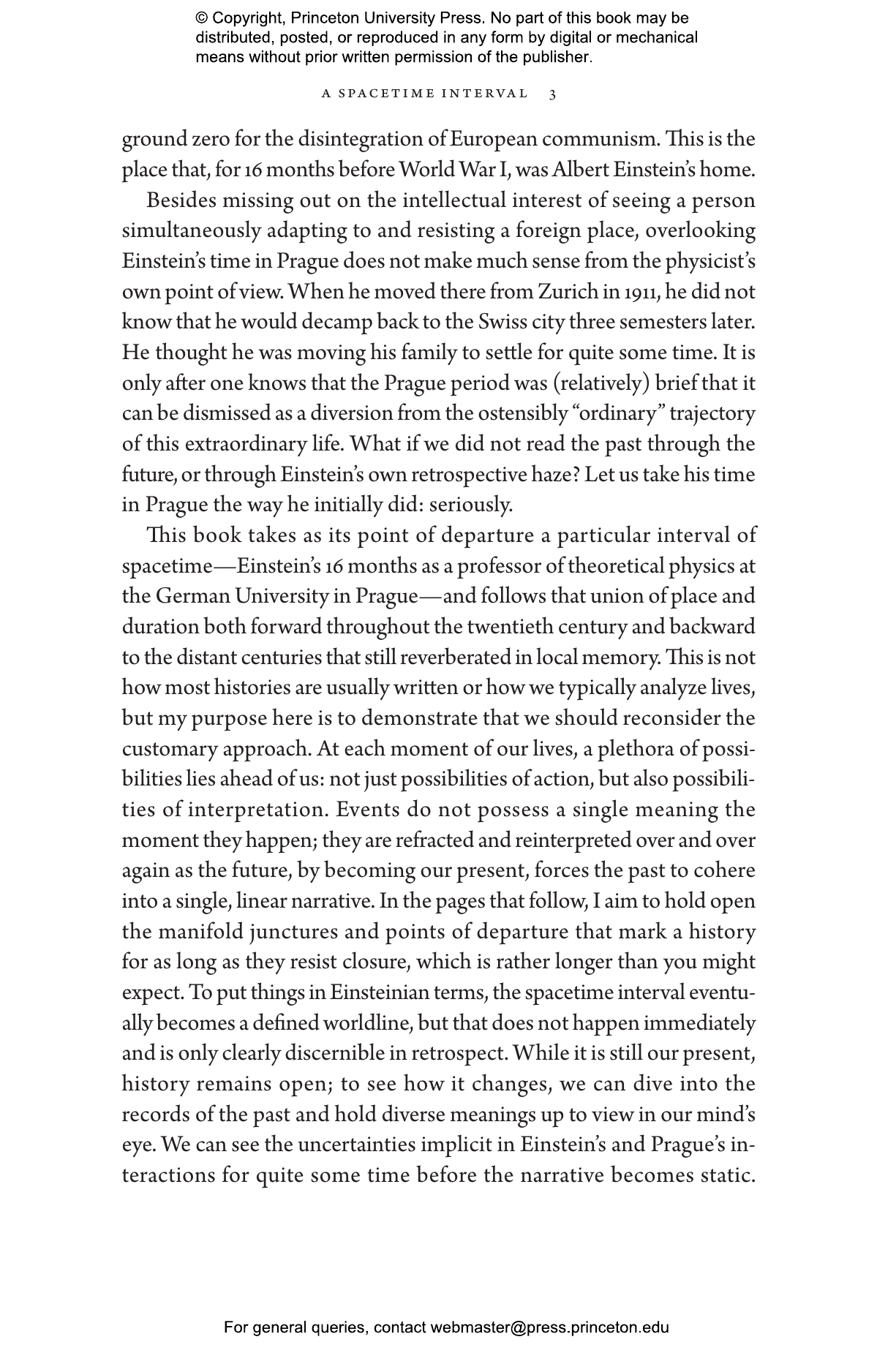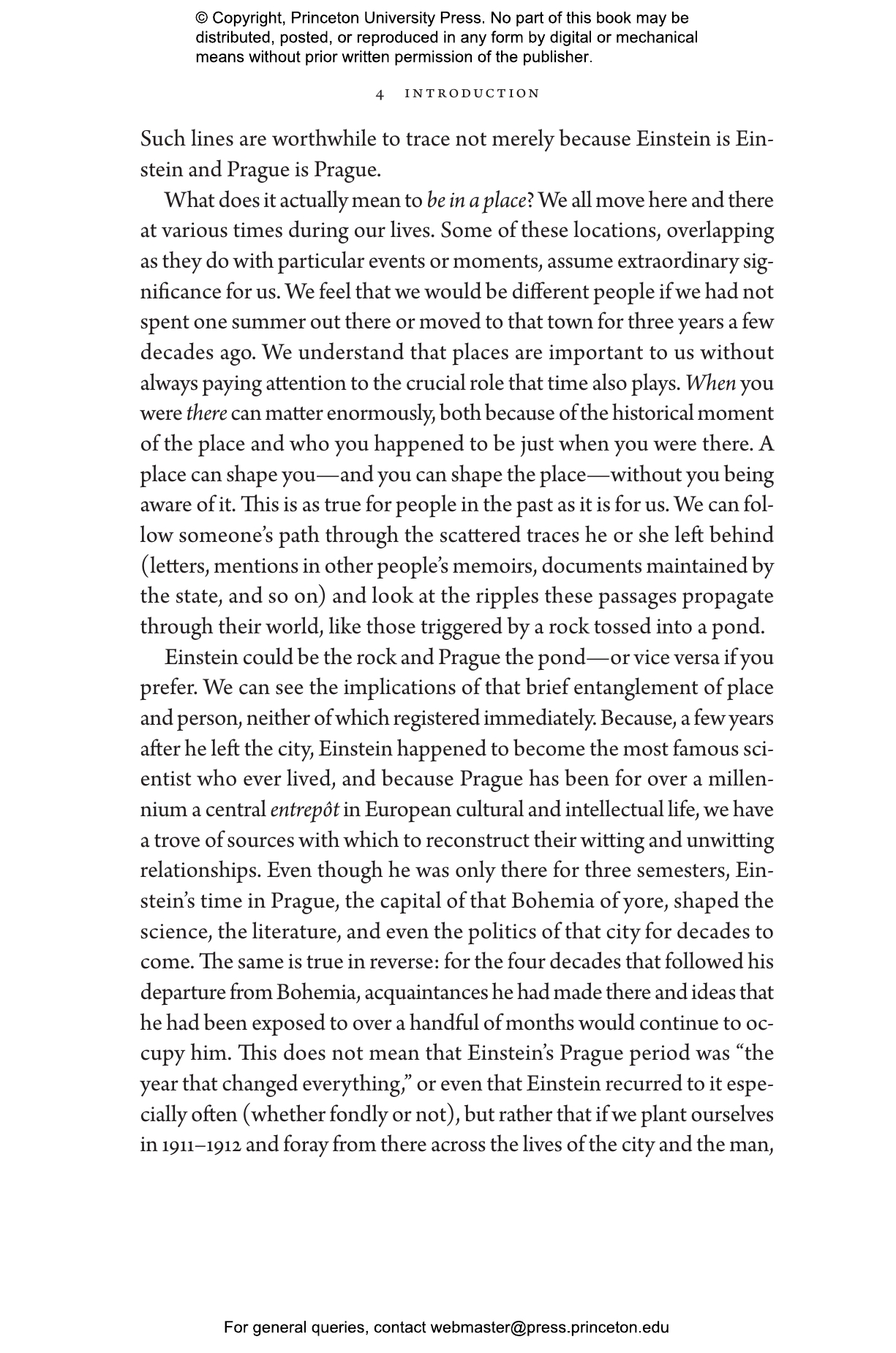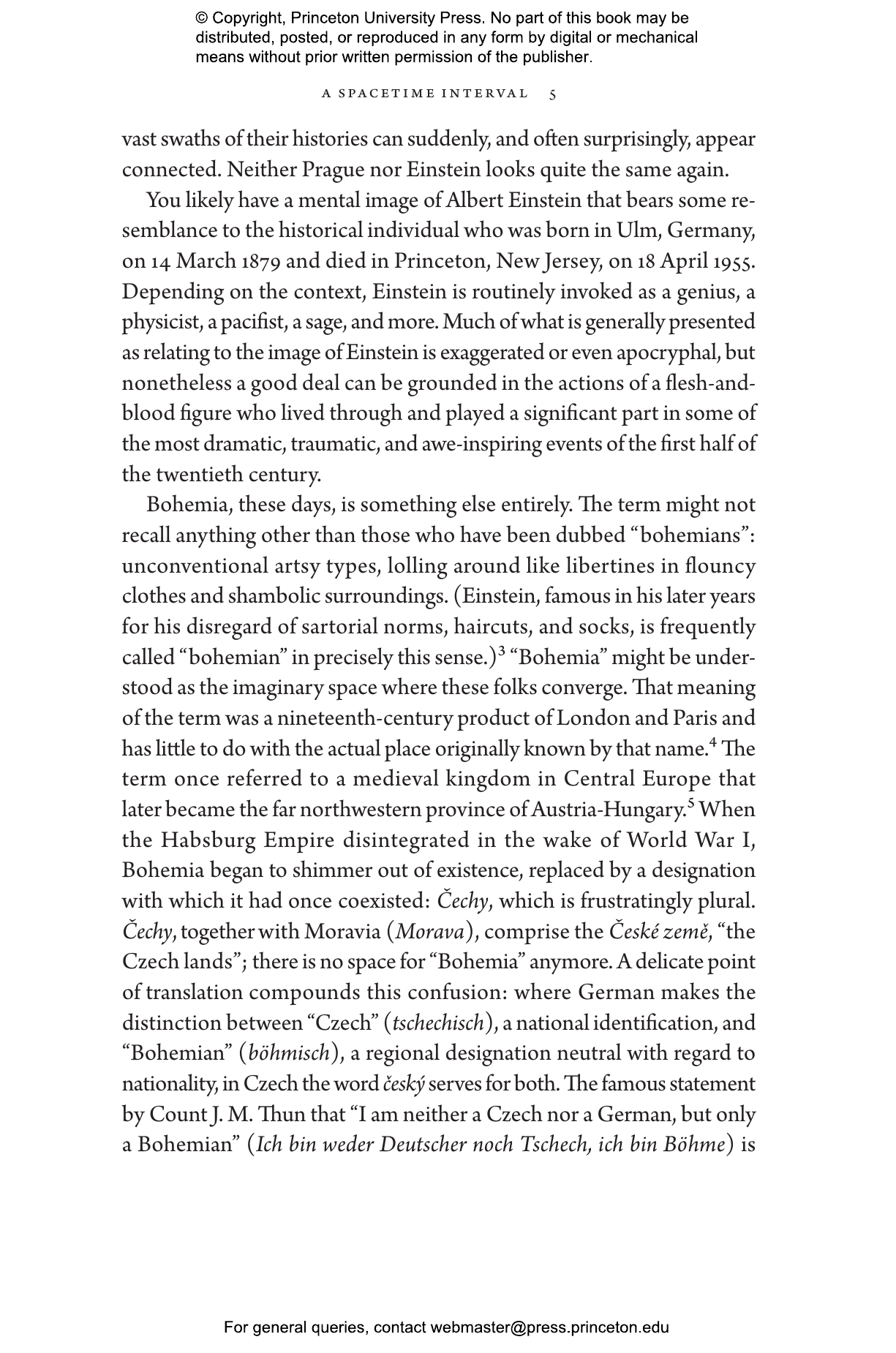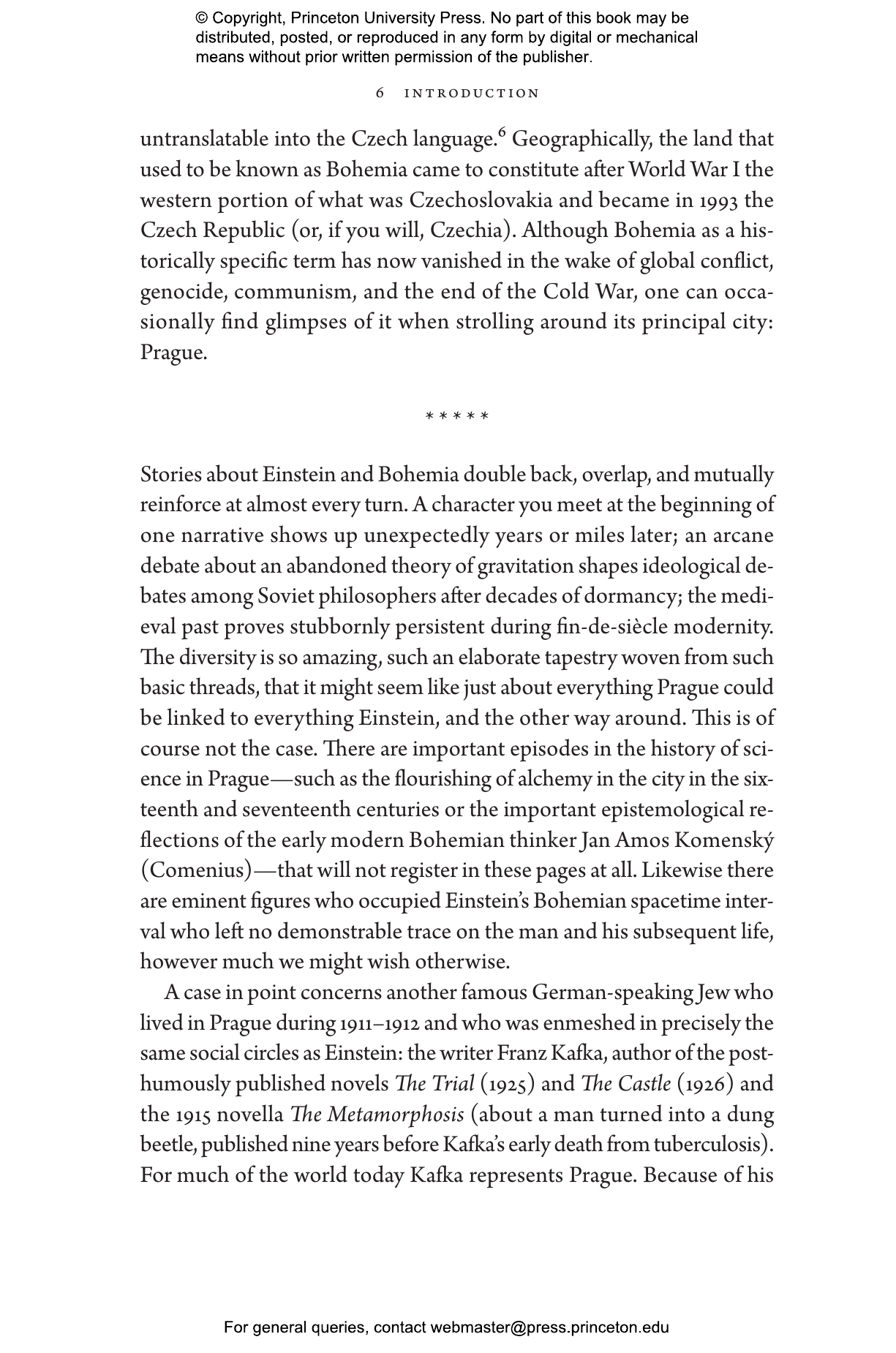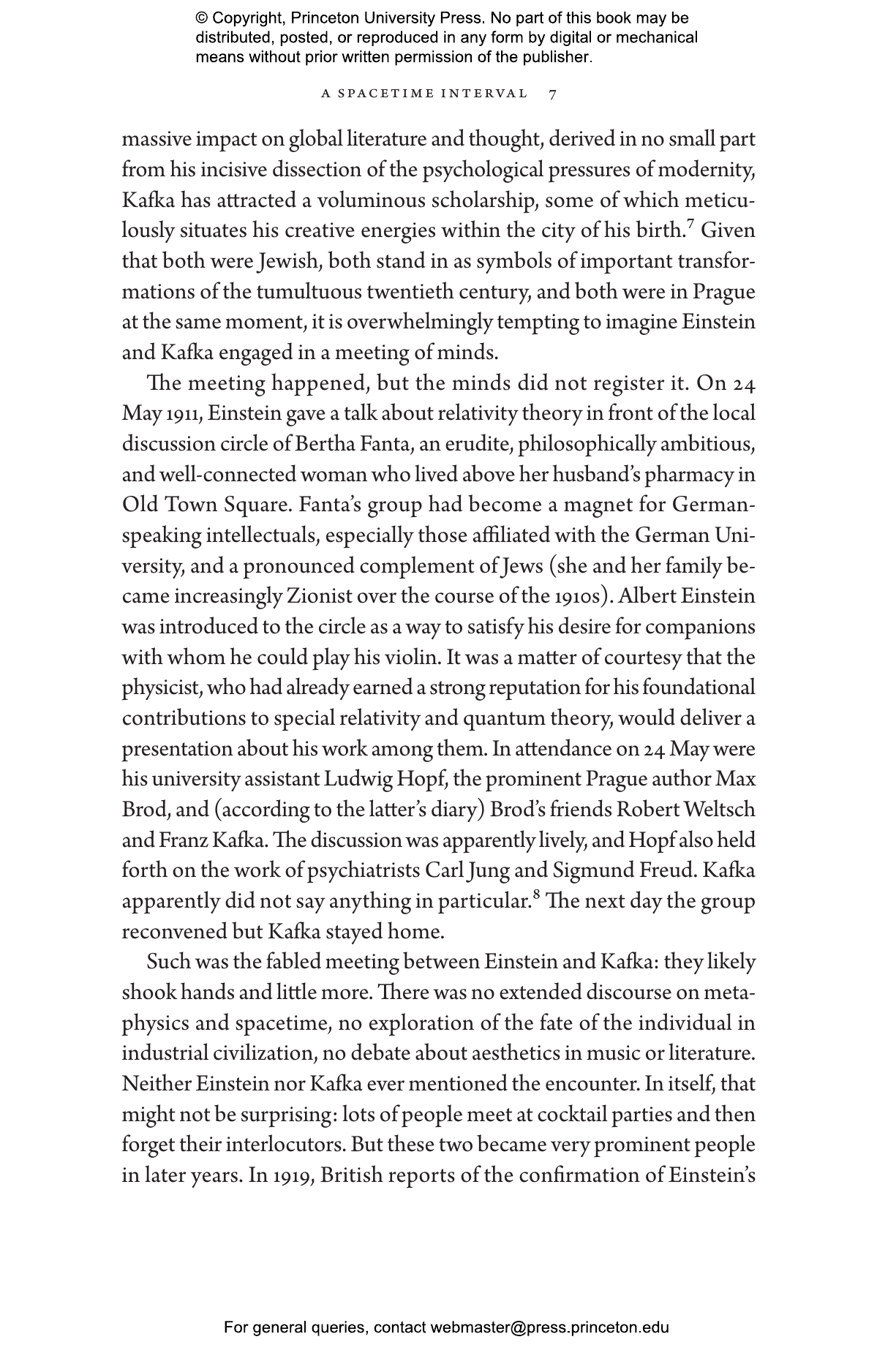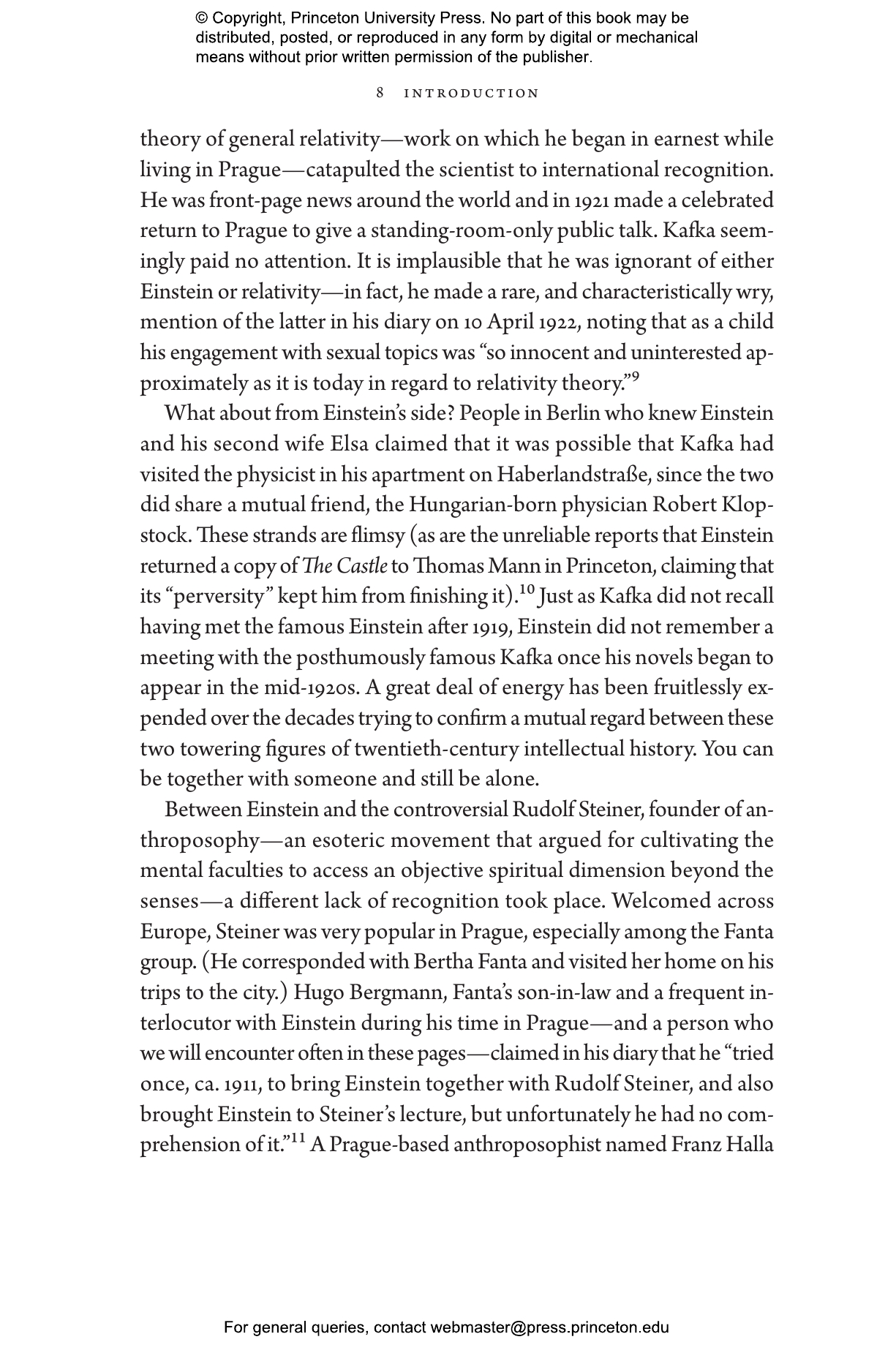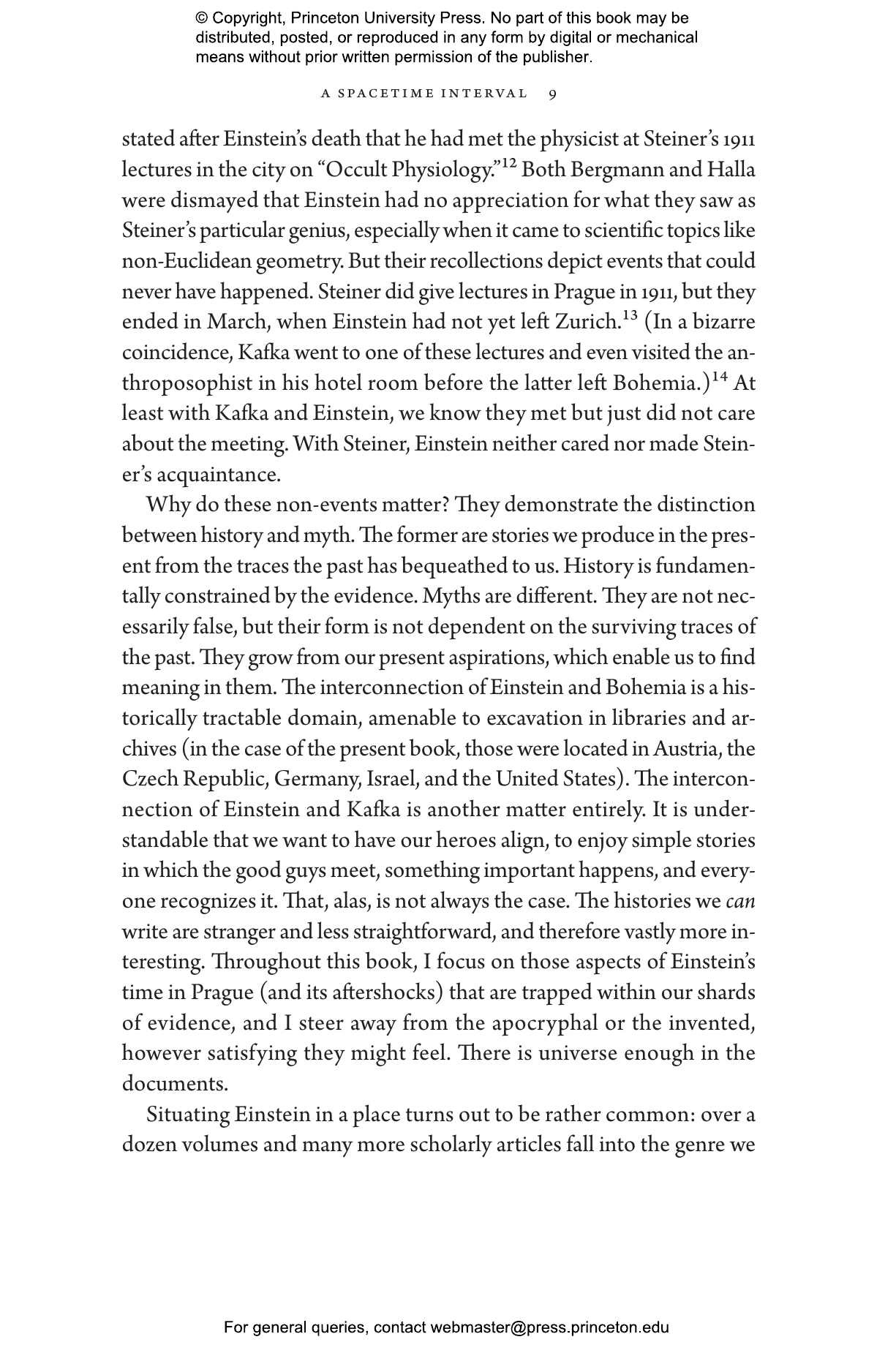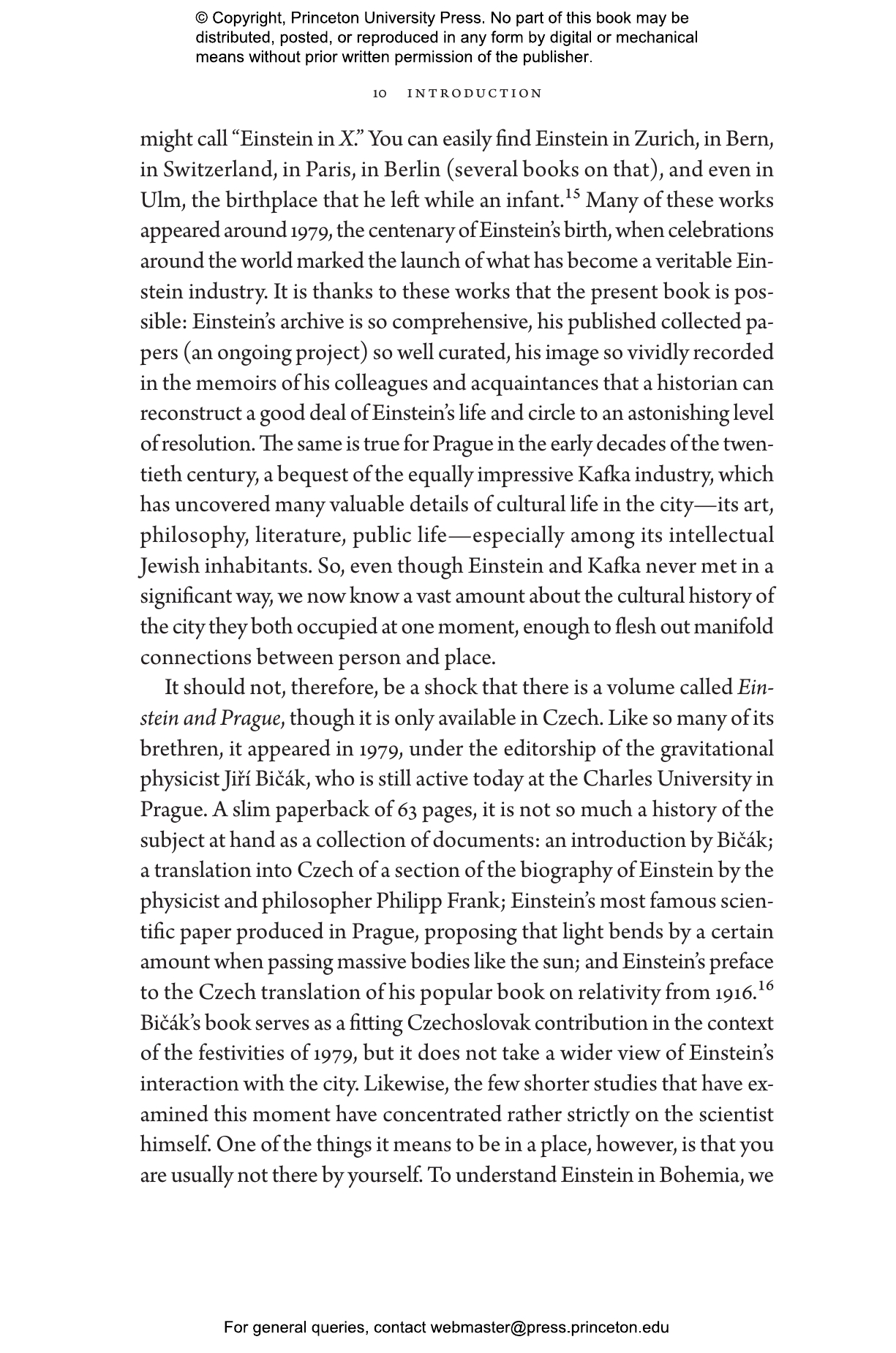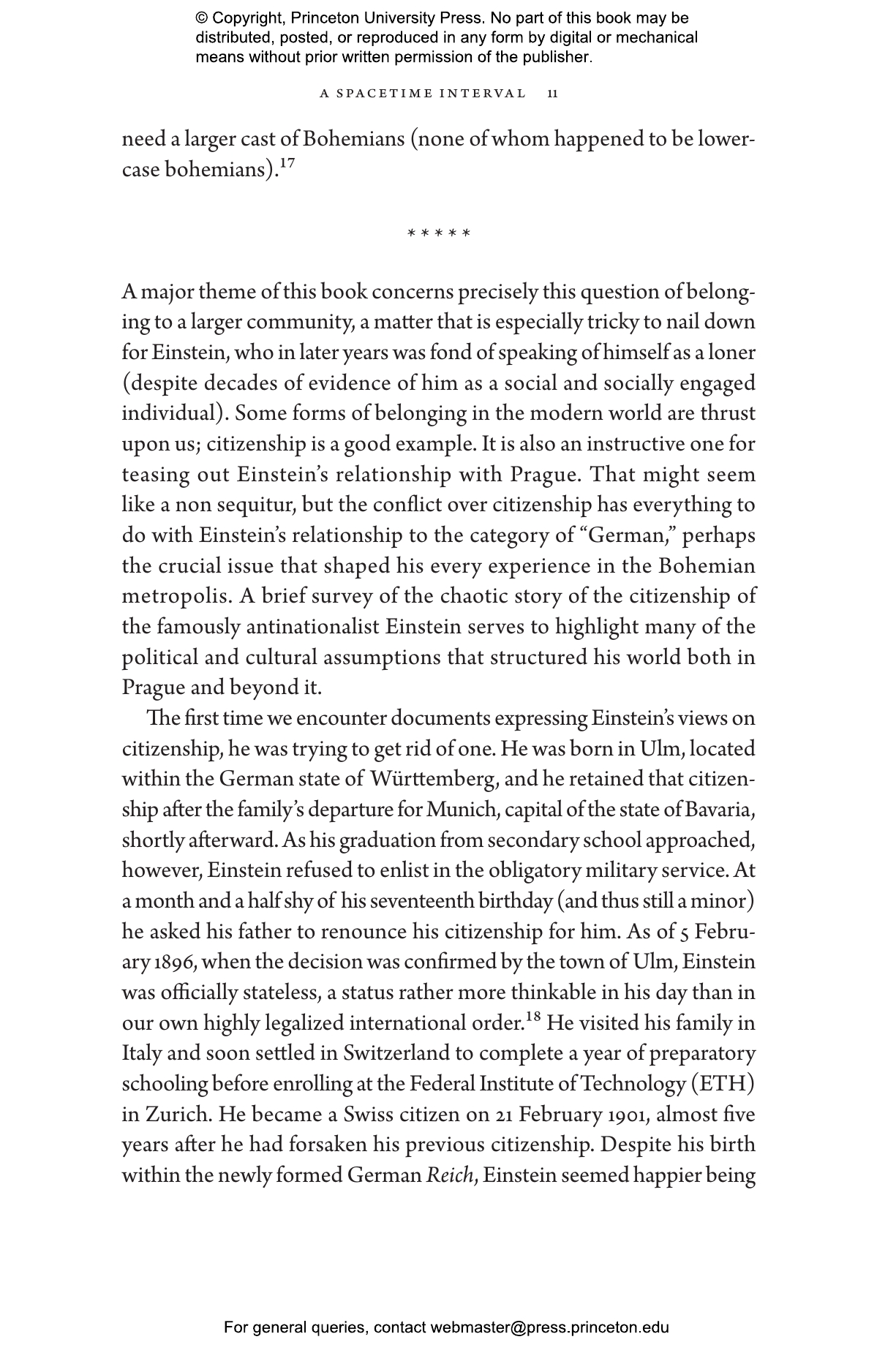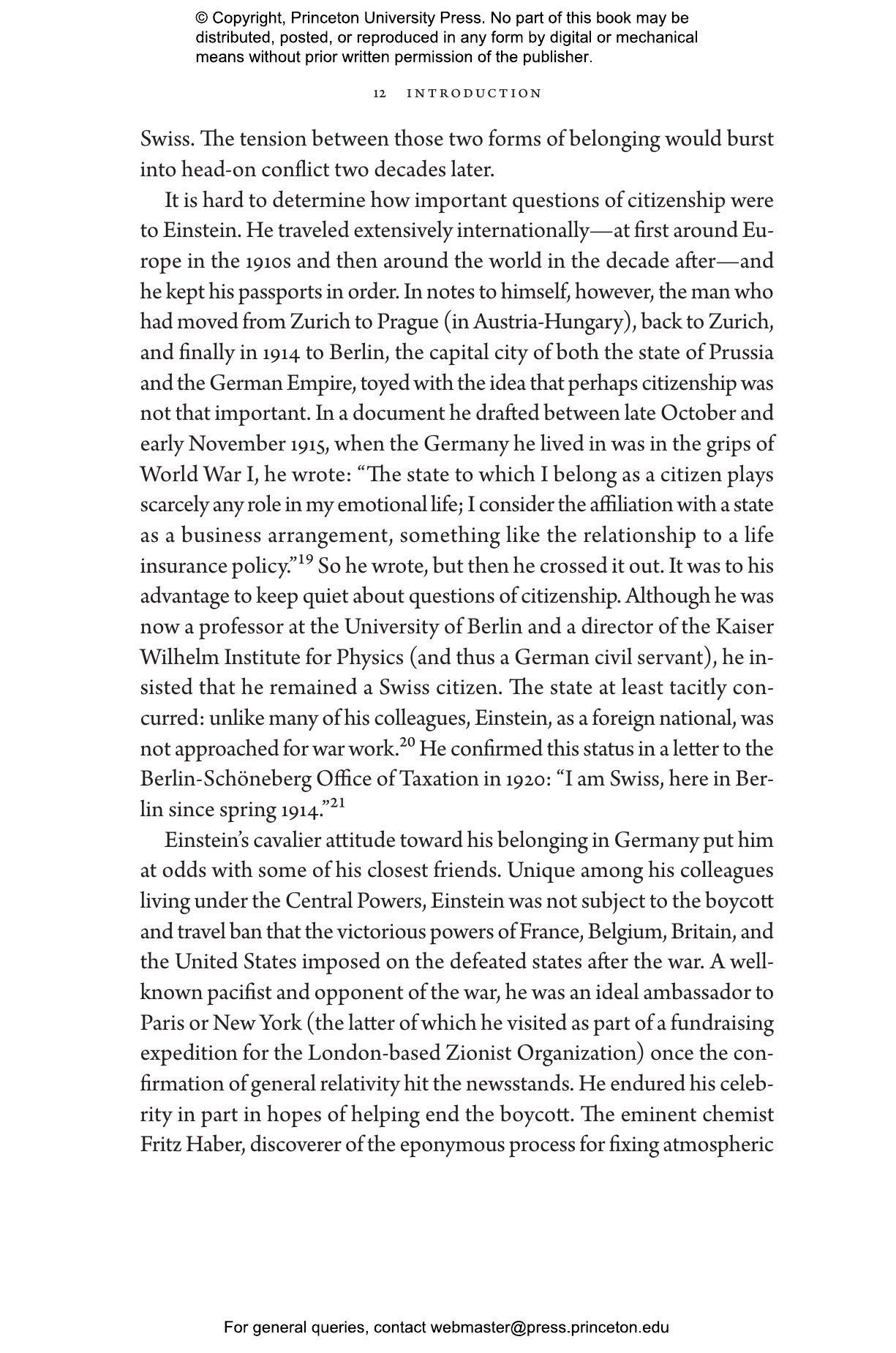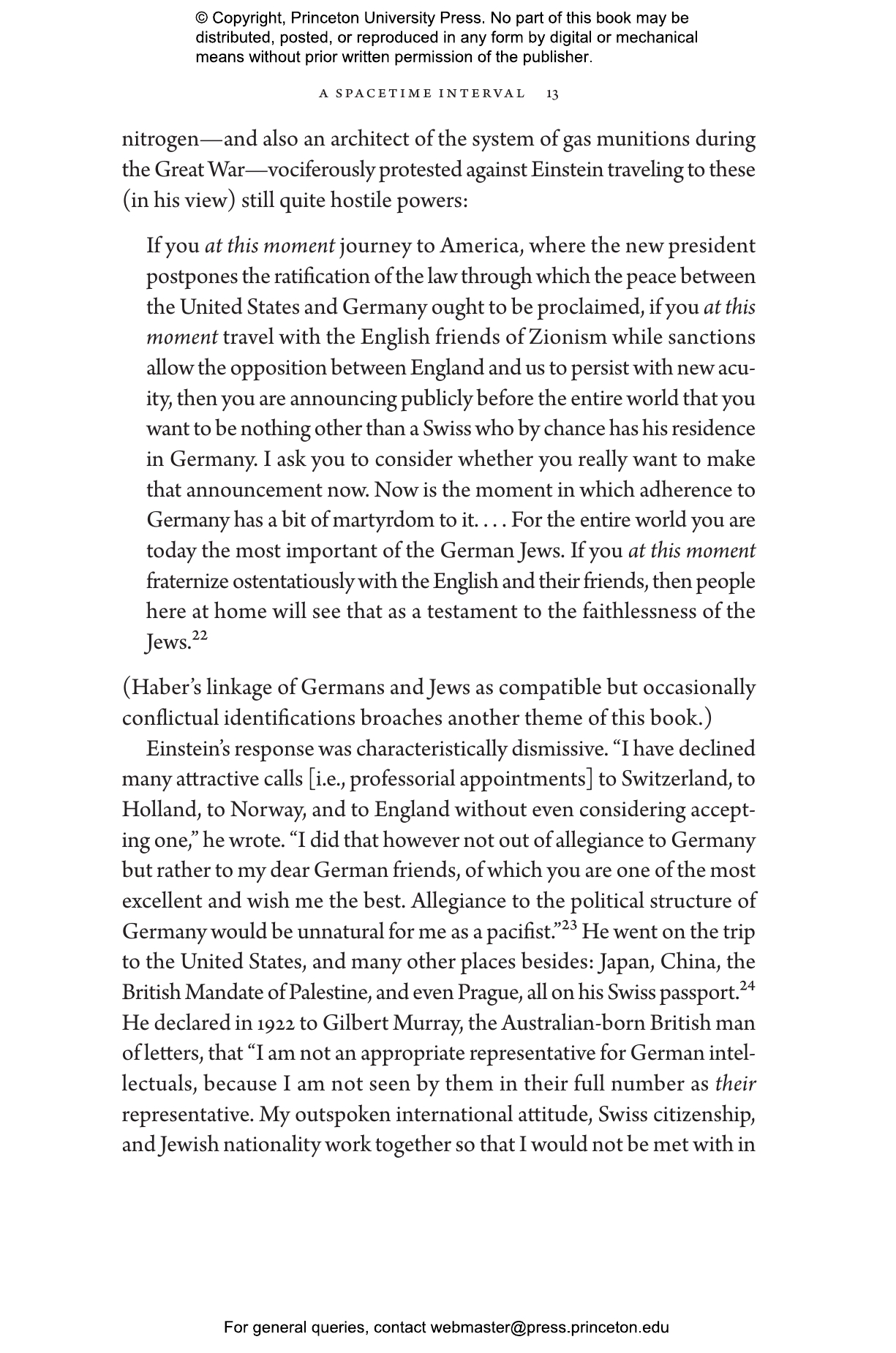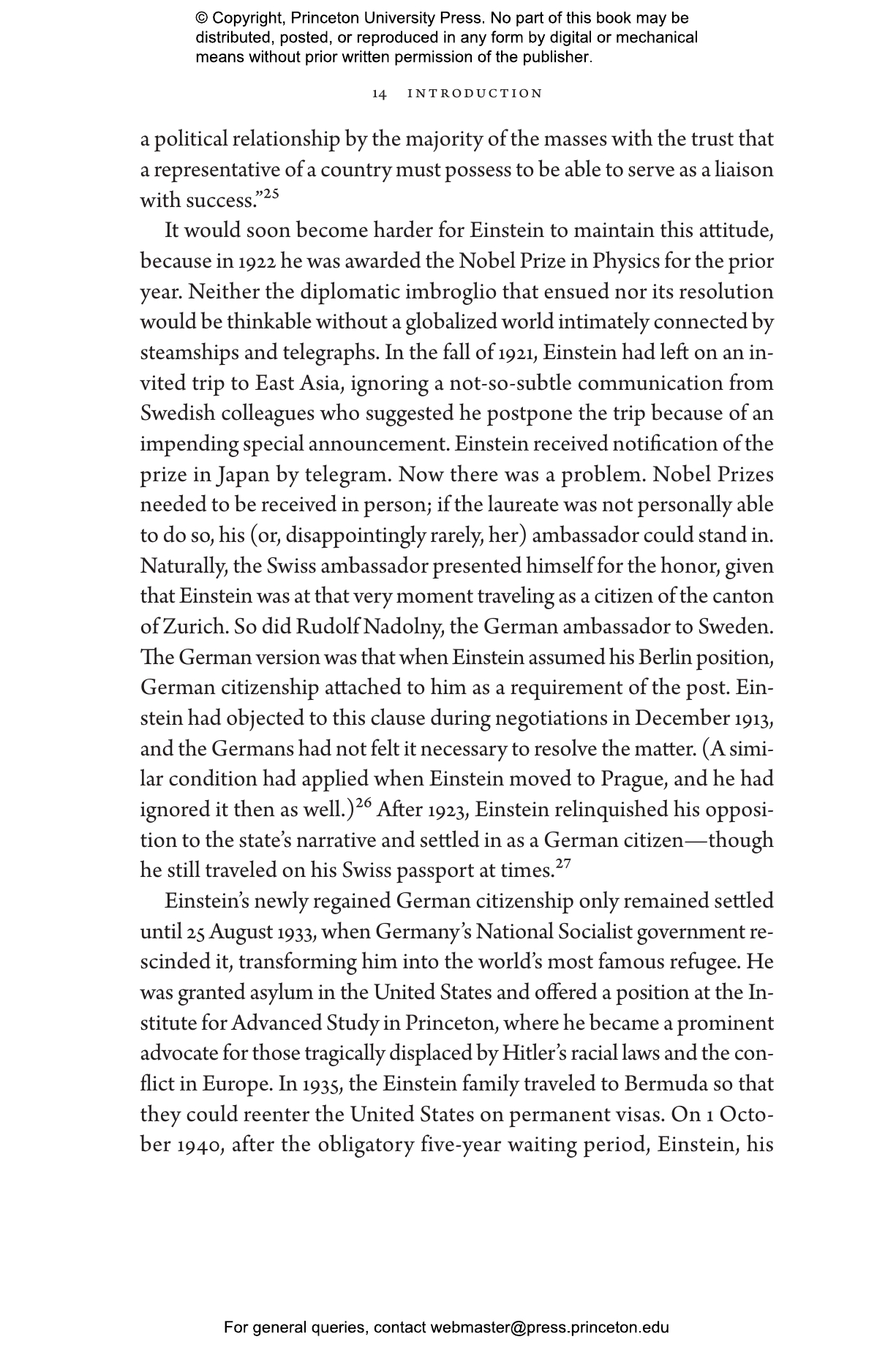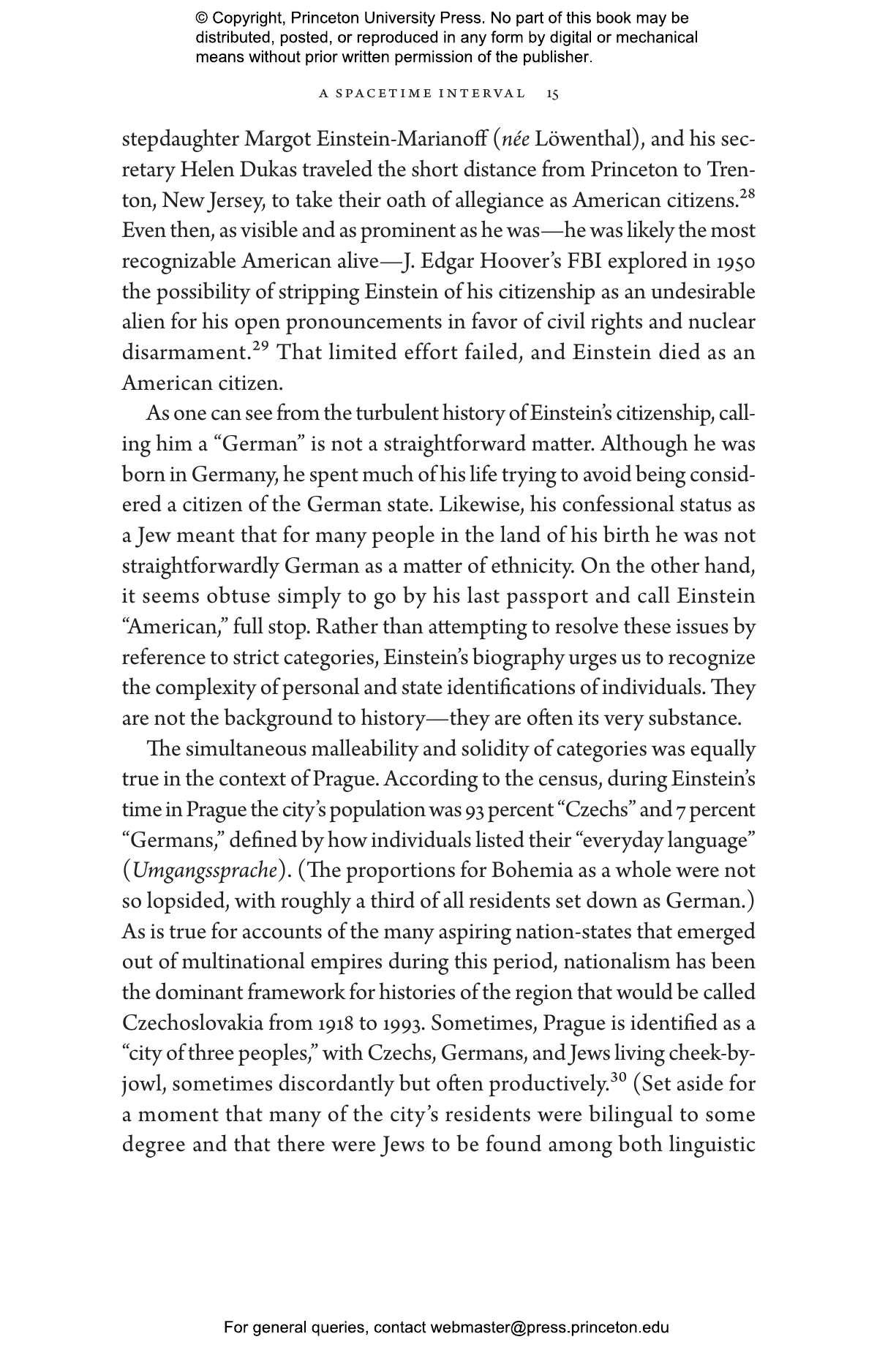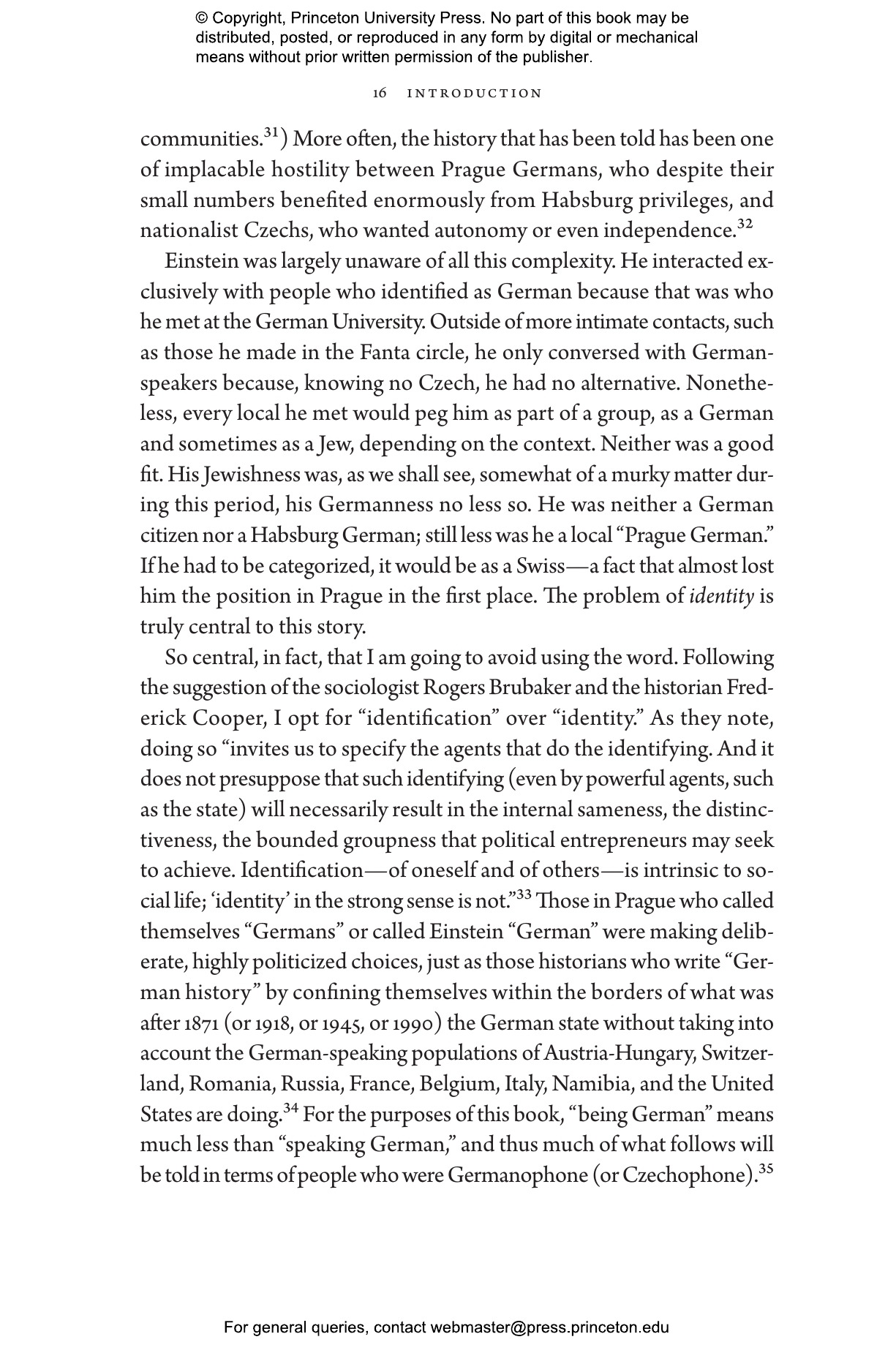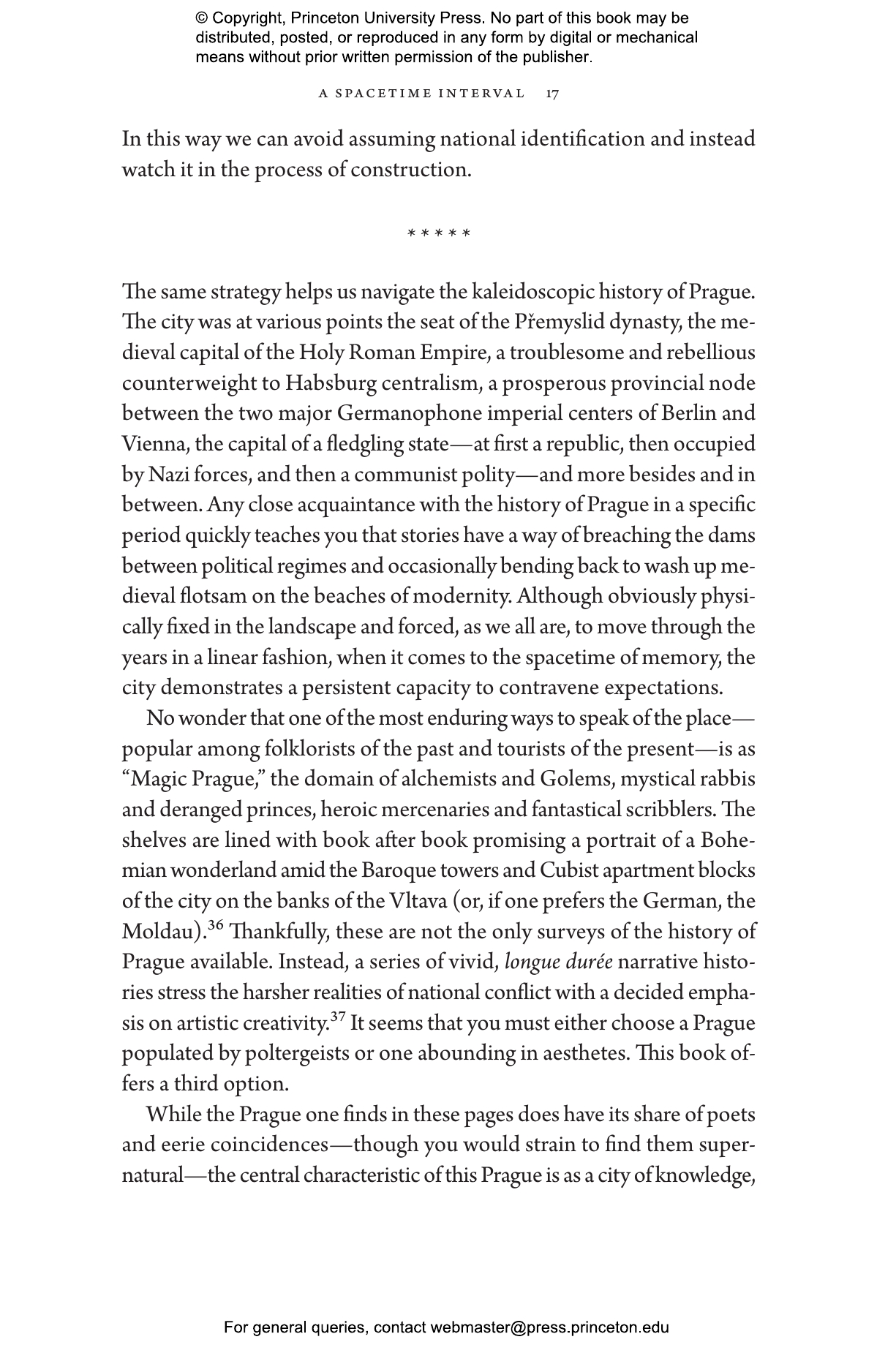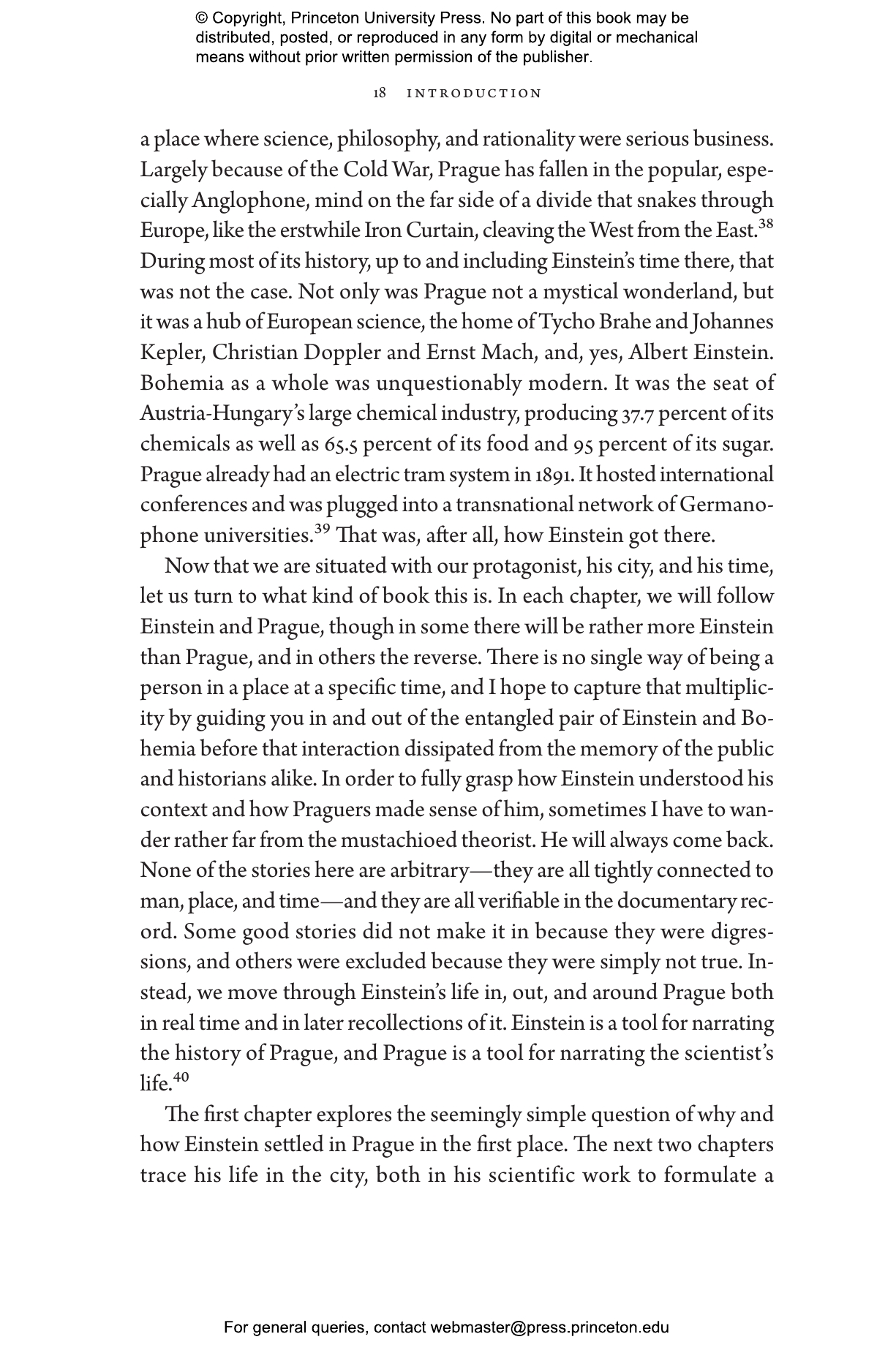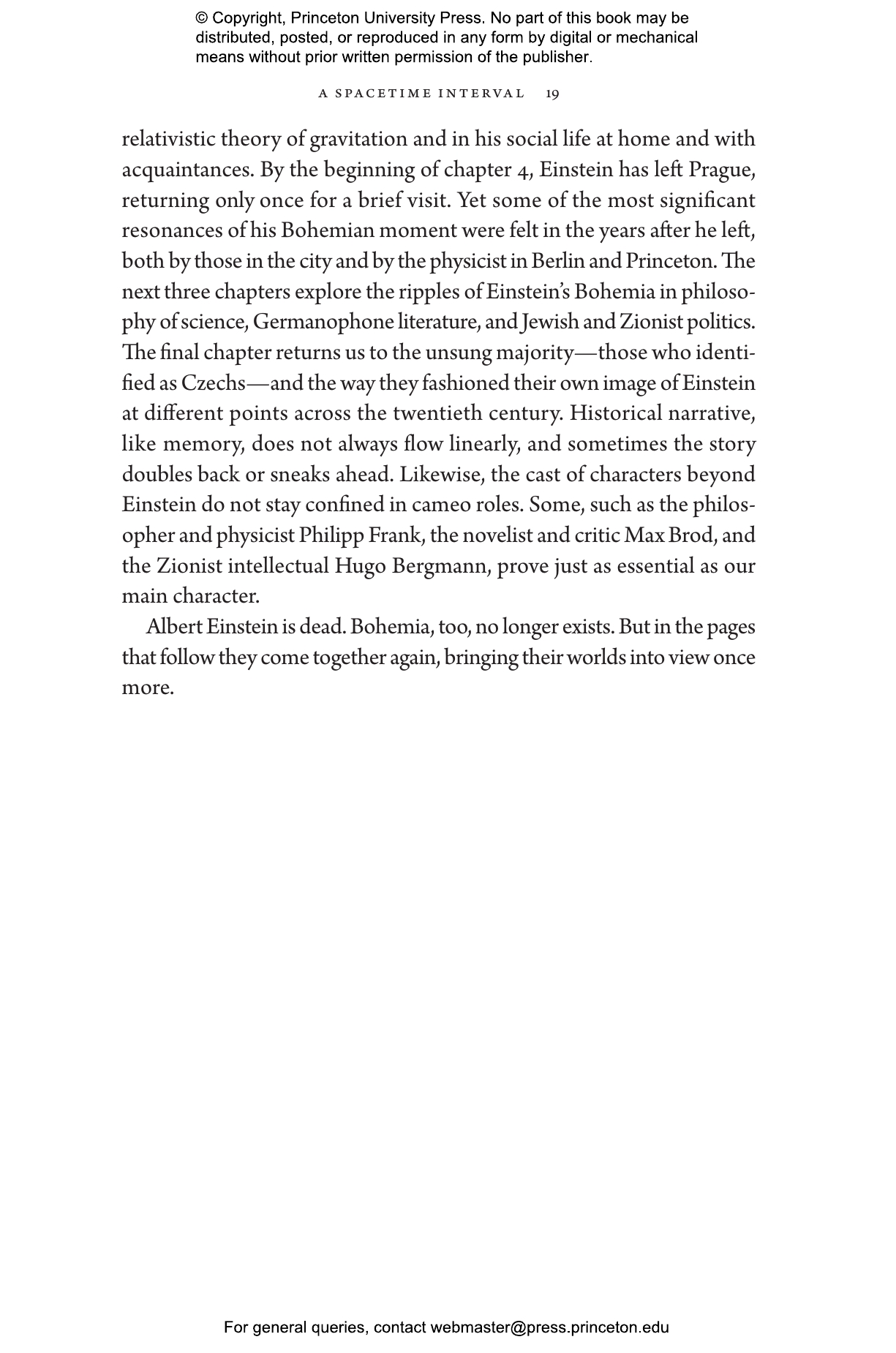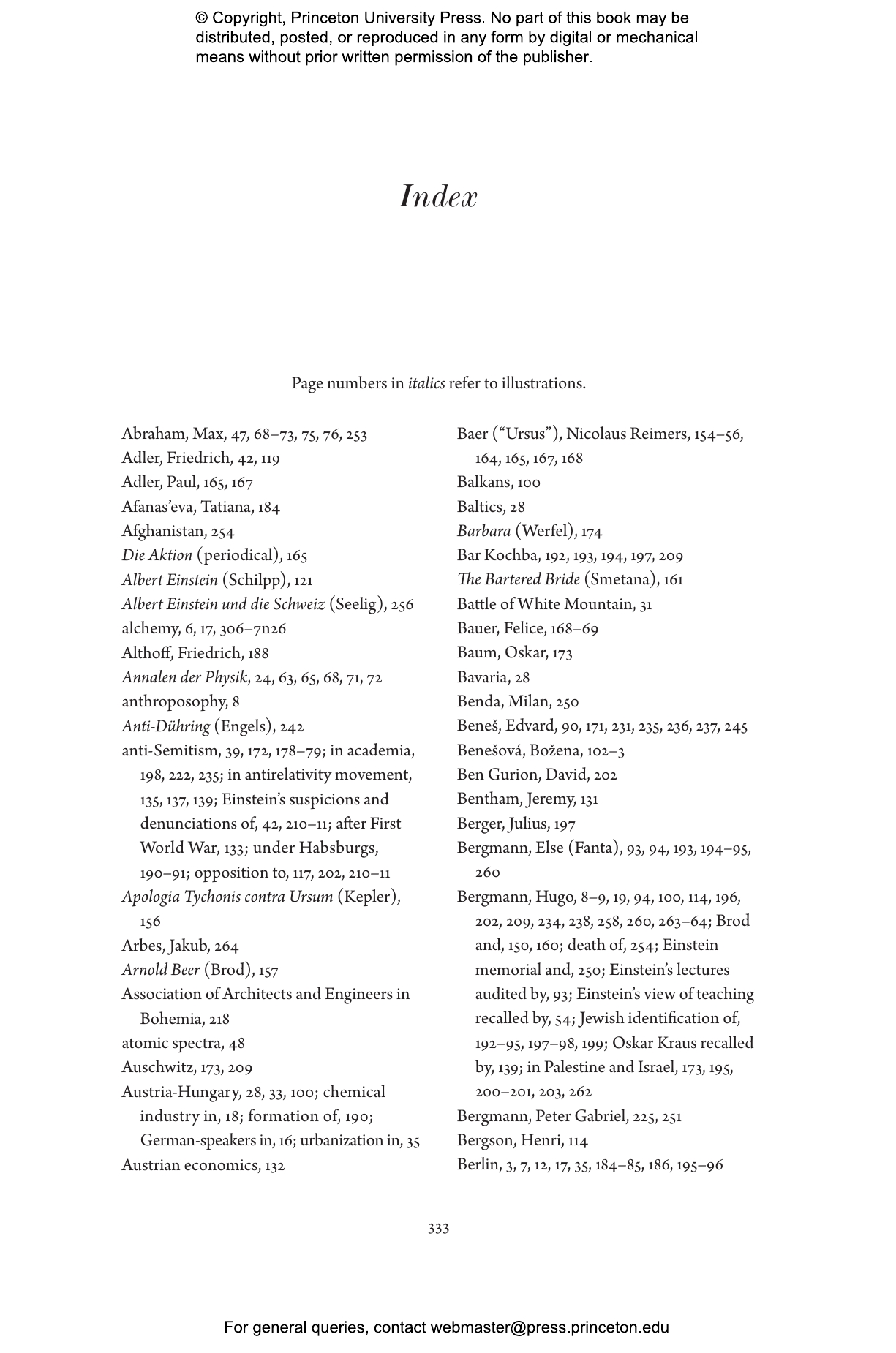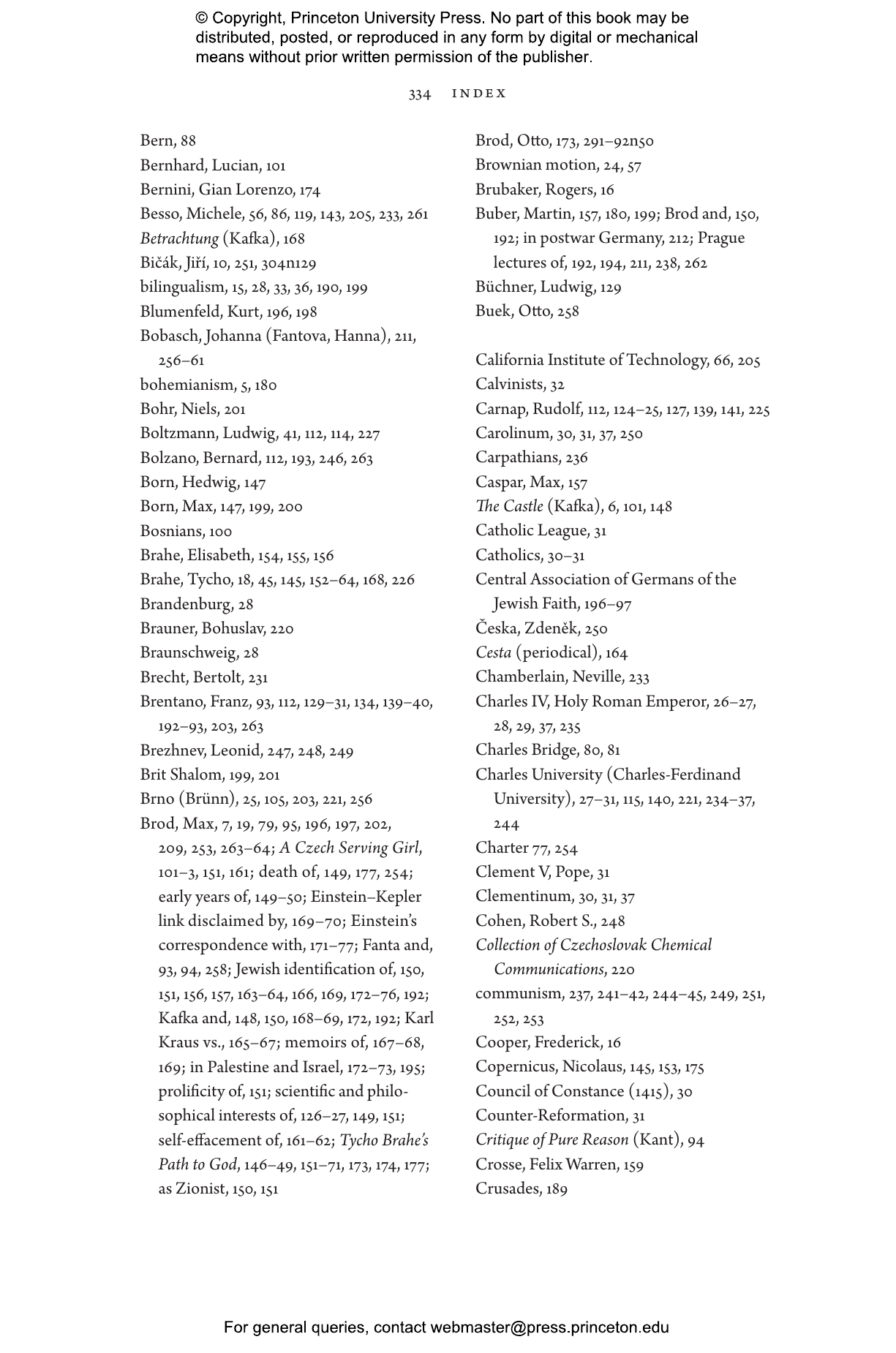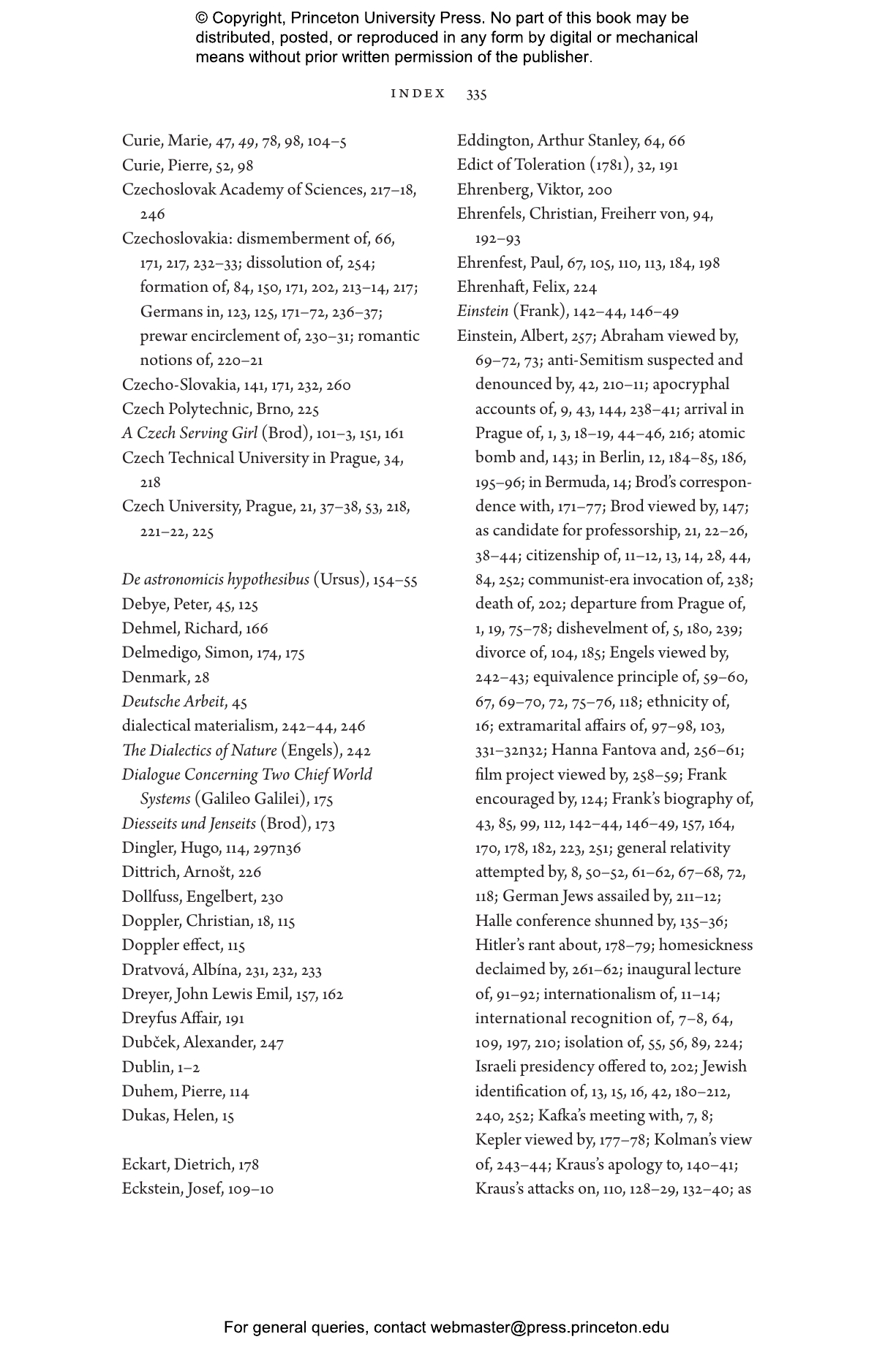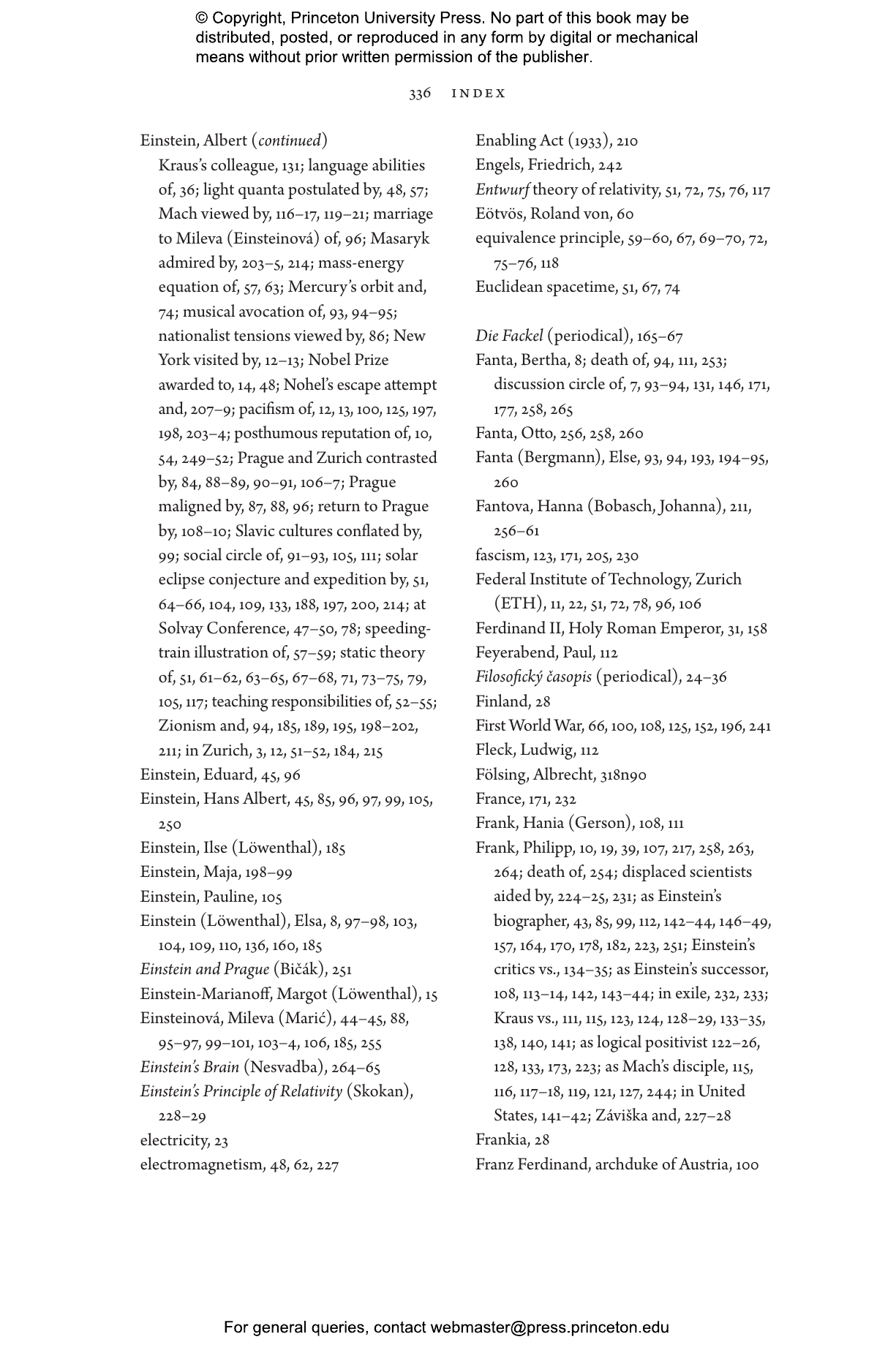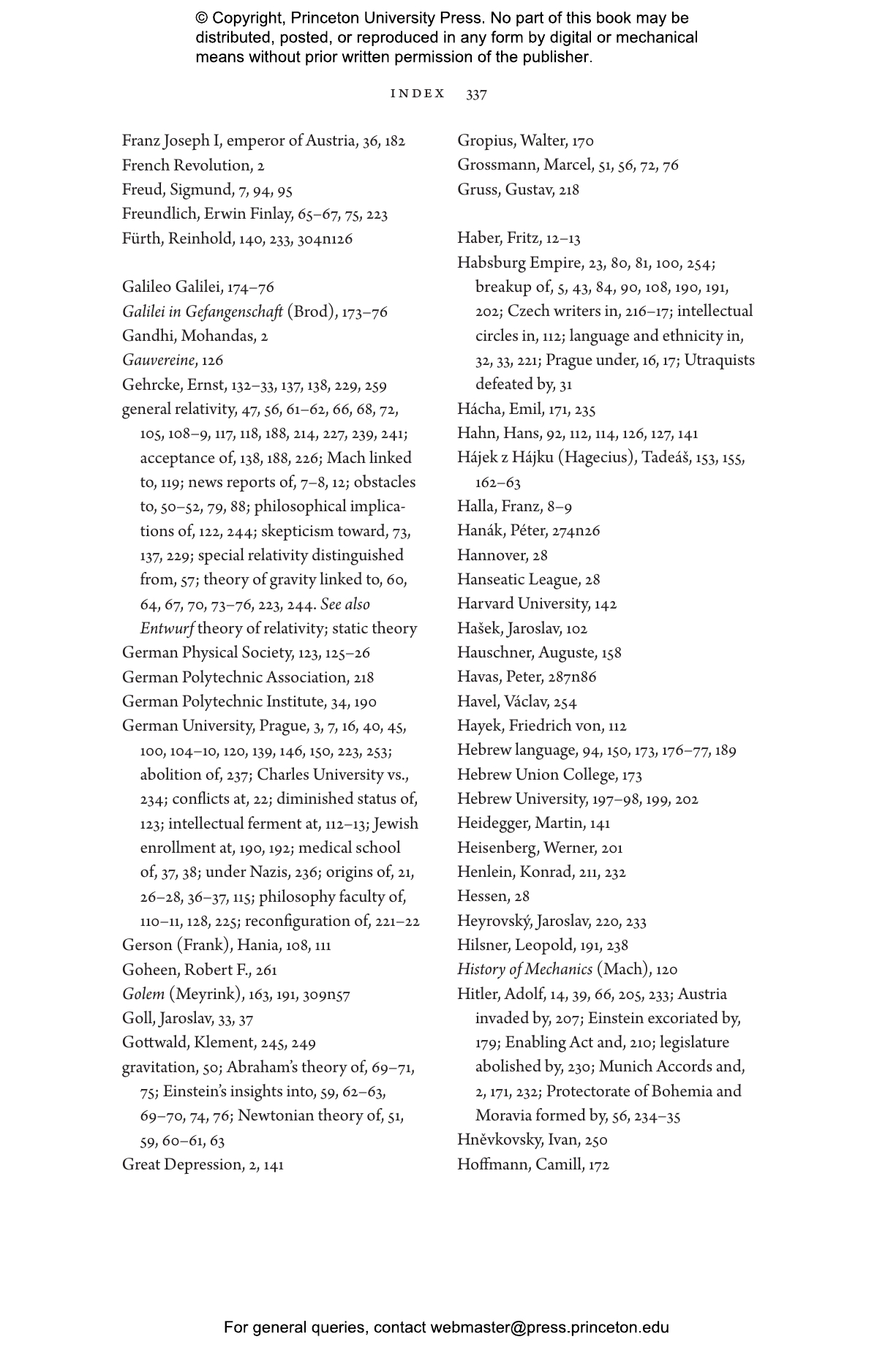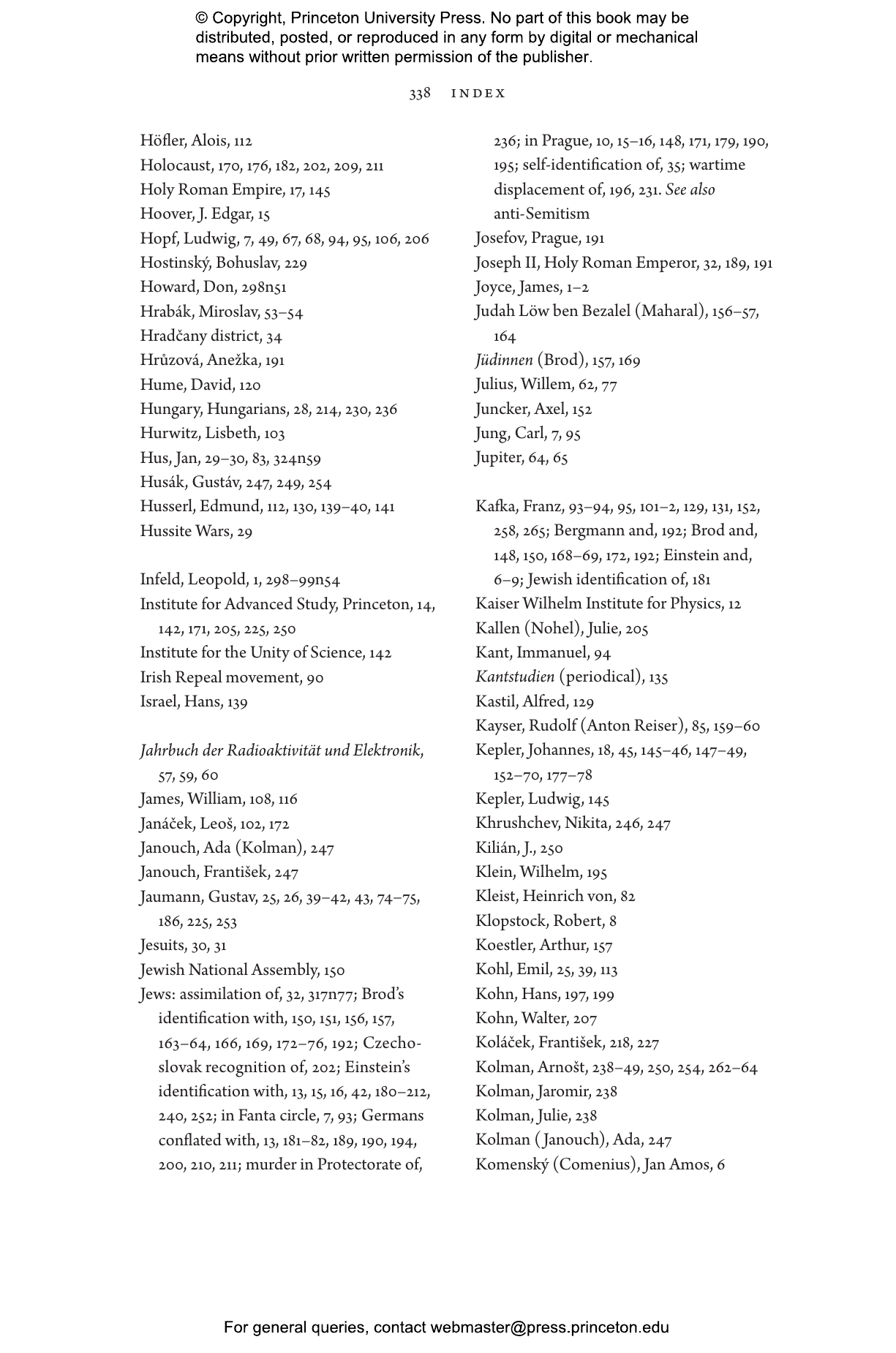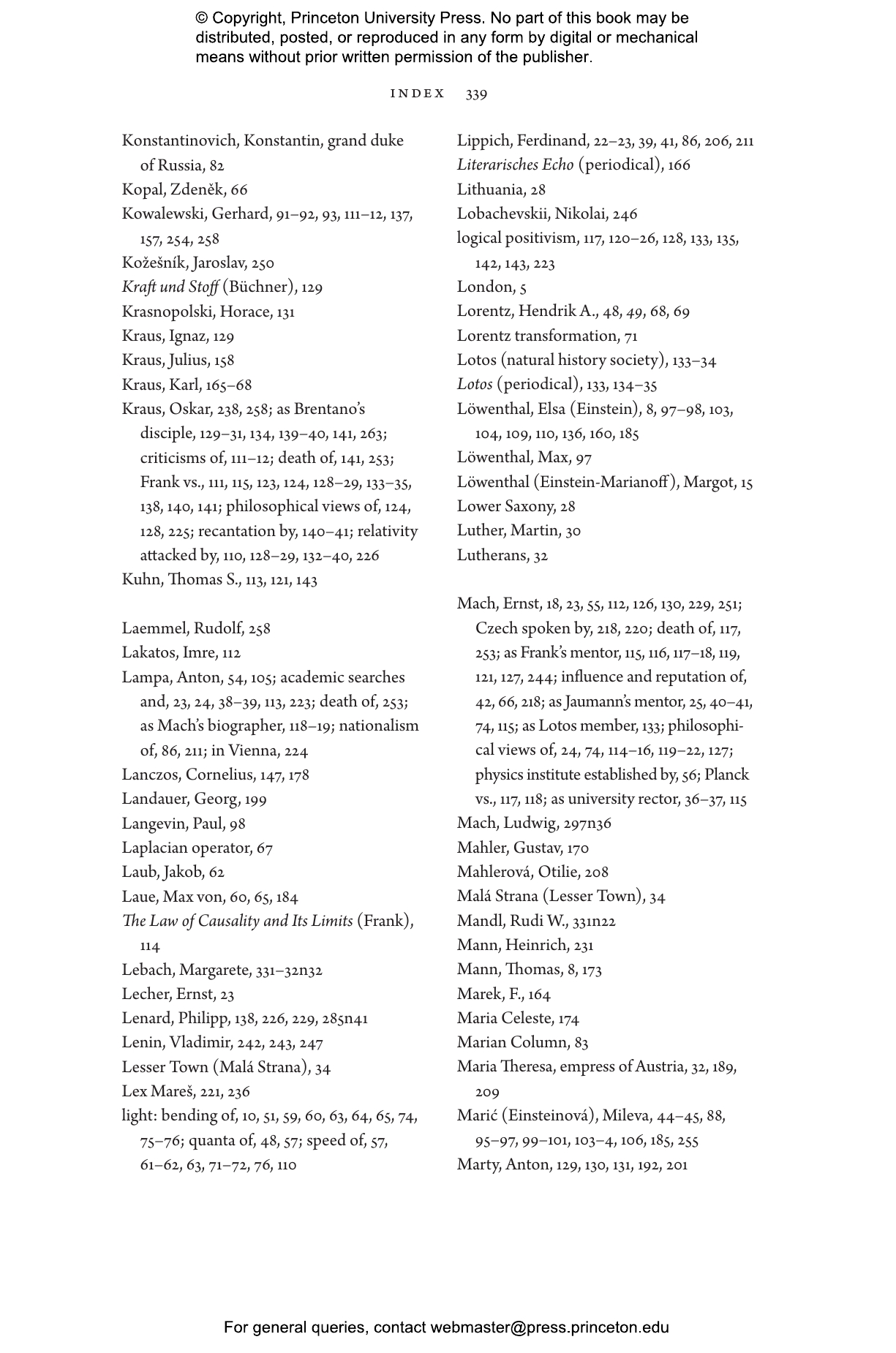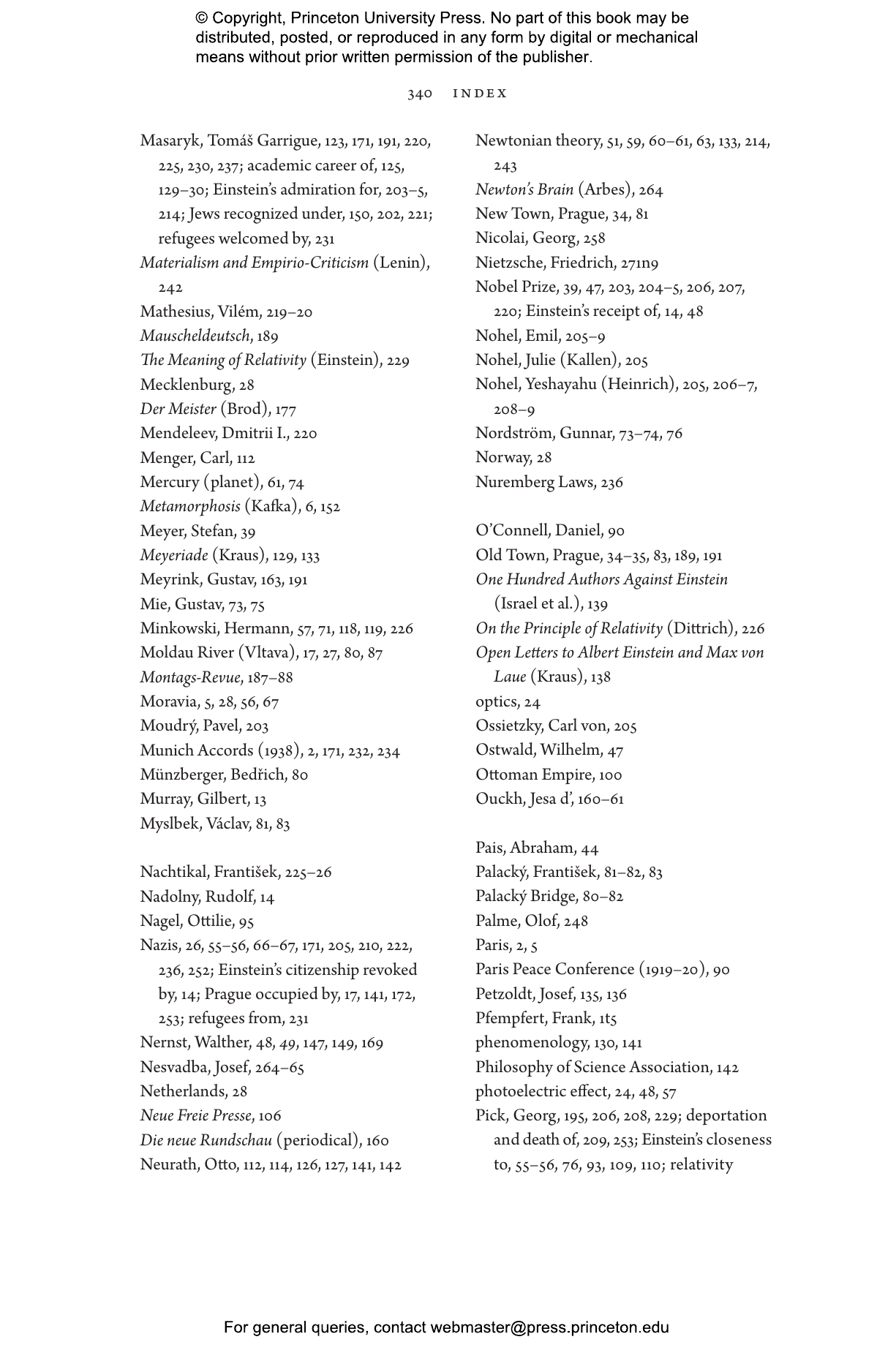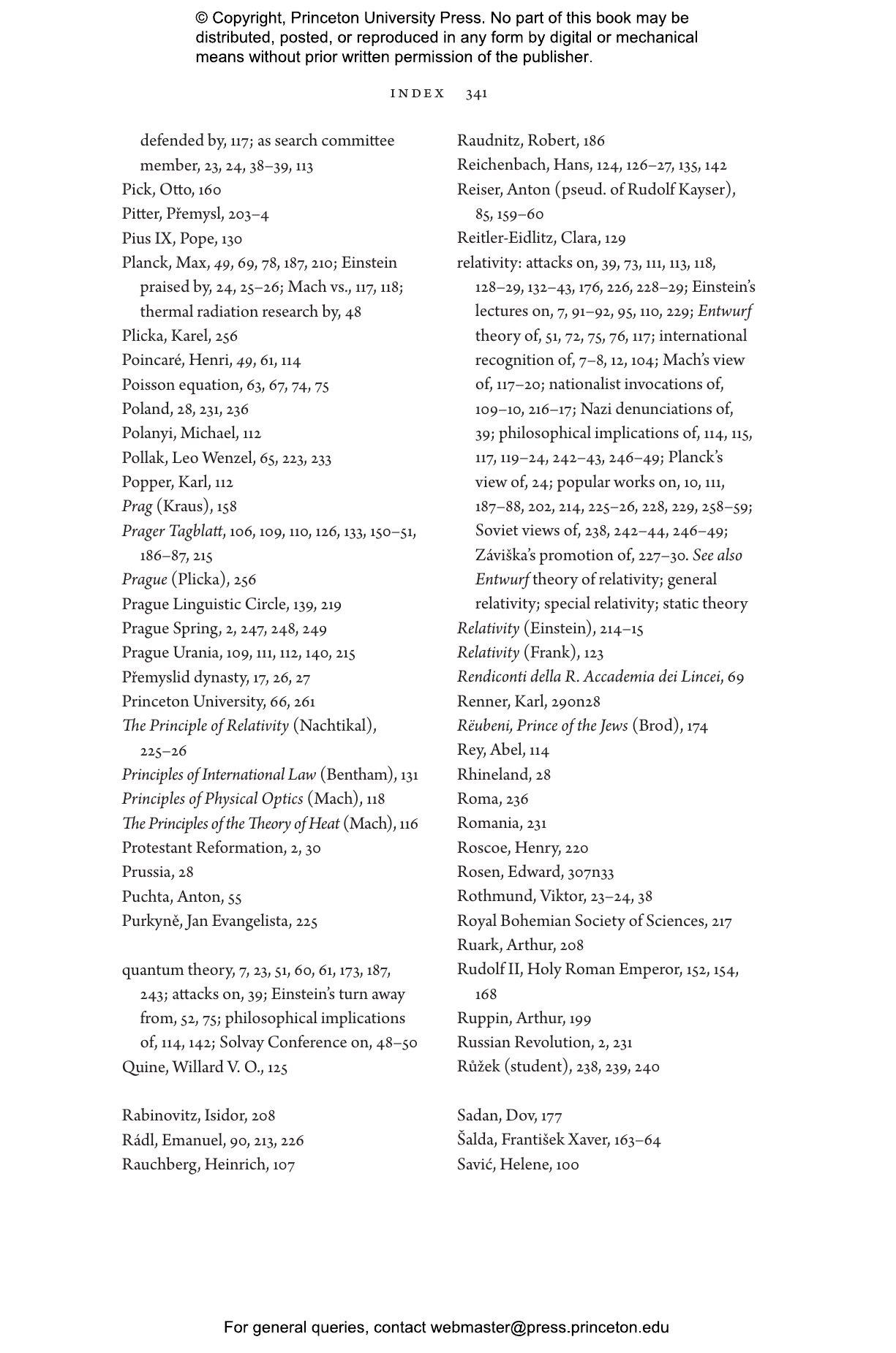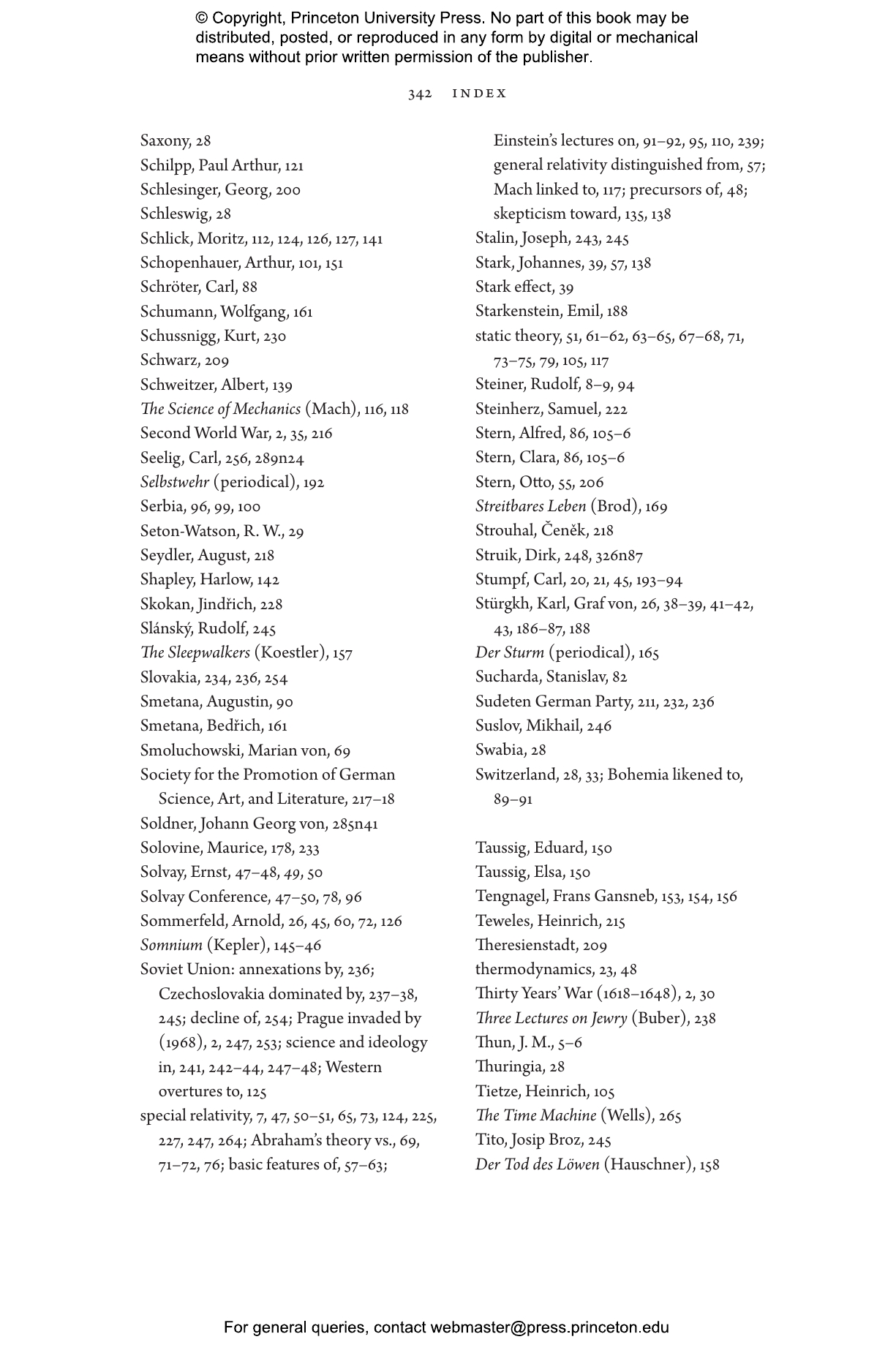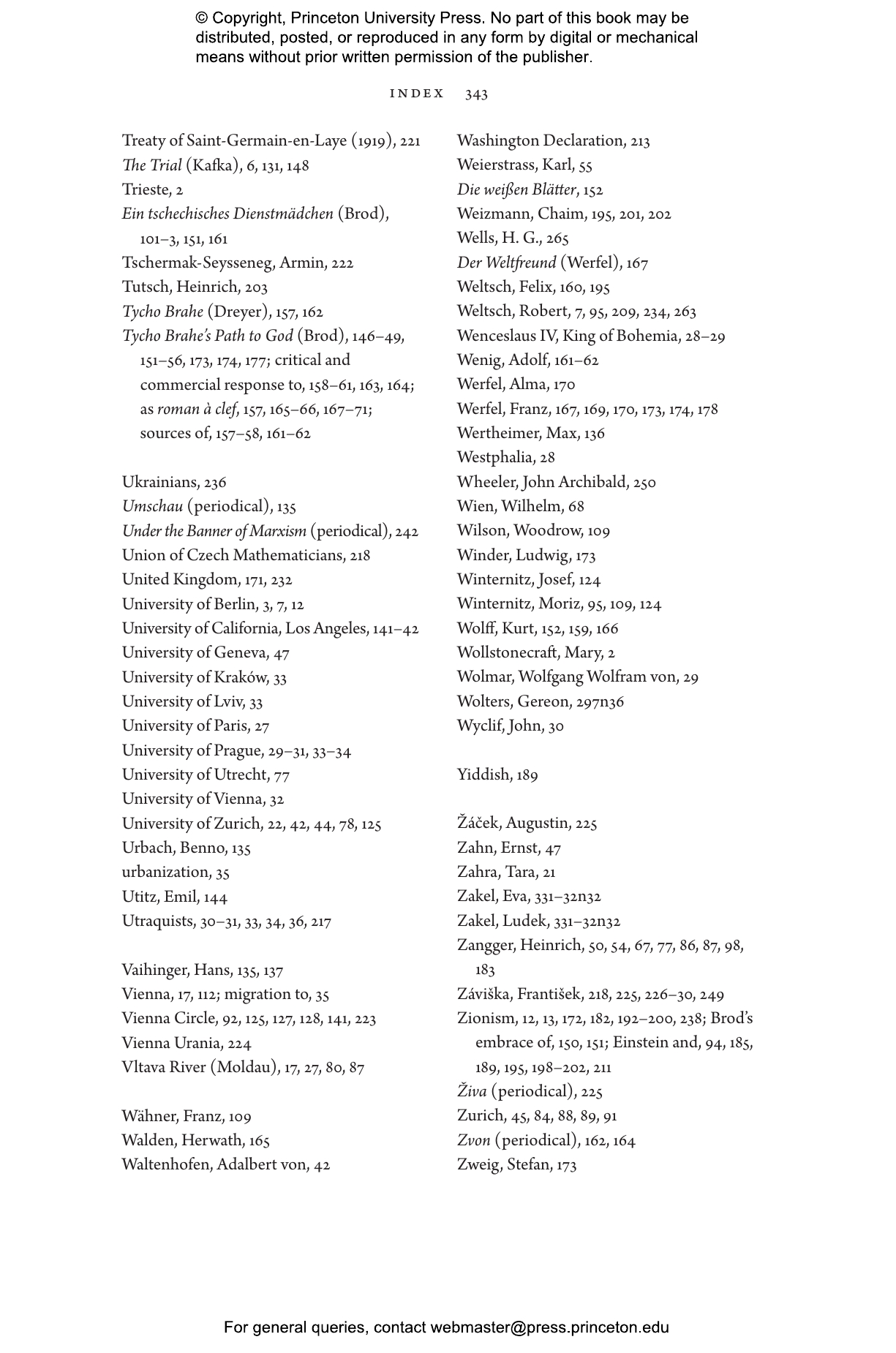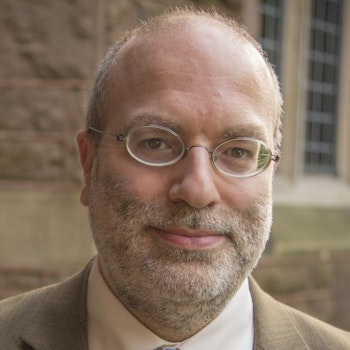In the spring of 1911, Albert Einstein moved with his wife and two sons to Prague, the capital of Bohemia, where he accepted a post as a professor of theoretical physics. Though he intended to make Prague his home, he lived there for just sixteen months, an interlude that his biographies typically dismiss as a brief and inconsequential episode. Einstein in Bohemia is a spellbinding portrait of the city that touched Einstein’s life in unexpected ways—and of the gifted young scientist who left his mark on the science, literature, and politics of Prague.
Michael Gordin’s narrative is a masterfully crafted account of a person encountering a particular place at a specific moment in time. Despite being heir to almost a millennium of history, Einstein’s Prague was a relatively marginal city within the sprawling Austro-Hungarian Empire. Yet Prague, its history, and its multifaceted culture changed the trajectories of Einstein’s personal and scientific life. It was here that his marriage unraveled, where he first began thinking seriously about his Jewish identity, and where he embarked on the project of general relativity. Prague was also where he formed lasting friendships with novelist Max Brod, Zionist intellectual Hugo Bergmann, physicist Philipp Frank, and other important figures.
Einstein in Bohemia sheds light on this transformative period of Einstein’s life and career, and brings vividly to life a beguiling city in the last years of the Austro-Hungarian Empire.
"Meticulous in scholarship and erudite in tone . . . [Einstein in Bohemia] will doubtless become an essential reference for anyone researching what has usually been seen as a minor chapter in Einstein’s life."—Andrew Crumey, Wall Street Journal
"Einstein in Bohemia is as much a series of essays on historical method and memory as it is a biography that uses Einsteinian ideas about perspective and spacetime to riff about the relationship between past and present, space and place. It’s also very much a book about Prague. It works in movements, looking backward and forward from Einstein’s Bohemian interlude to explore issues of biography, physics, Czech and German nationalism, the philosophy of science, literature, Jewishness, and public monuments. It is best savored in chunks, to better indulge in moments of reflection."—Audra J. Wolfe, Los Angeles Review of Books
"His original and illuminating study . . . is a fascinating mix of urban and scientific history, and a genuinely original contribution to Einstein studies that explores both the effect of the city on the scientist and the lasting impact Einstein’s presence had on the cultural and scientific life of Prague itself."—P. D. Smith, Times Literary Supplement
"Gordin explores unknown connections and forgotten biographies with impressive scholarly meticulousness and fervor."—Tilman Sauer, Science
"[Gordin] explodes the narrative out of what he calls the 'spacetime interval' of 1911–12 to follow a host of figures who were involved with Einstein in Prague, in some cases very tangentially. In so doing, he careers through the history of ideas as well as the political turmoil of Bohemia (now part of the Czech Republic) during most of the twentieth century, touching on physics, philosophy, nationhood, anti-Semitism and the rise of Prague as a centre of intellectual life."—Pedro Ferreira, Nature
"A meticulously researched, accessible, and fascinating portrait of Einstein."—Glenn C. Altschuler, Jerusalem Post
"Gordin's Einstein in Bohemia affords us a refreshingly different kind of perspective on Einstein in context. The book treats its location - Prague in 1911 and 1912 - not merely as a backdrop, but as an integral part of the drama."—Don Howard, Physics Today
"[A] deeply researched, wide-ranging and original book."—Andrew Robinson, Physics World
"I was gripped . . . this is such a delightful and unusual book."—Richard Joyner, Times Higher Education
"Einstein in Bohemia is a methodological confection, carefully concocted from an unlikely pairing of the textures and flavors of two historical ingredients: Einstein and Prague."—M. Norton Wise, ISIS
"[This] book paints a rich picture of a small part in Einstein's life that will be fascinating to anyone interested not only in the scientist but also his historical context."—Nature Astronomy
"Through extensive primary sources, Gordin explores the effect that Prague’s rich history infused into Einstein’s life, and the way that Einstein made his own significant mark on Bohemia’s story."—Alden Hunt, Princeton Alumni Weekly
"Gordin handles the theme of ‘belonging’ with great nuance and understanding."—David Luhrssen, The Shepherd Express
"In this deeply researched and documented study, Gordin treats this brief period in Einstein's life as a prism through which the physicist refracts a broad range of intellectual, personal, scientific, and religious topics. The author sees Einstein as a window to understand Prague, and vice-versa, and reveals, in elegant and engaging prose, stimulating insights into many larger issues."—P. W. Knoll, Choice
"[Gordin] is a vivid writer who uses a biographical approach to bring the past and its people alive. . . . This account of [Einstein's] challenging interlude in Bohemia is at once informative, engaging, and enjoyable."—Simon Mitton, The Observatory
"Einstein in Bohemia is a stunning book that should make one think differently about place, time, identity, and historical causation. It is provocative and methodologically fascinating – indeed, one could teach an entire graduate methods seminar just from the introduction. It is beautifully written from start to finish and is compelling on every page. This is a must-read for historians of science, or really historians in general – and anyone interested in what it means to be in a place, at a time, and how those affect who someone is."—Matthew Stanley, Annals of Science
"Gordin’s book is refreshing, engaging, sucks you into Eastern Europe where all the magic happened in the 1910s."—Adam Tamas Tuboly, Review of History of Philosophy of Science Books
"[A] fascinating volume on the undersung importance of the sixteen months Albert Einstein spent in Prague (the capital of Bohemia) as a professor of theoretical physics at the German University there from early April 1911 to late July 1912."—Naomi Pasachoff, Metascience
"In Michael Gordin's erudite hands, a seemingly minor episode in Einstein's life becomes a window onto the milieu in which the physicist's most extraordinary work, the theory of general relativity, began to emerge. Einstein in Bohemia serves up a deliciously rich slice of history, offering a portrait of one of the great capitals of the Western world and a fresh perspective on the greatest scientist of the modern age."—Philip Ball, author of Beyond Weird: Why Everything You Thought You Knew about Quantum Physics Is Different
"This beautifully written double biography of Albert Einstein and the city of Prague is a wonderfully creative historical work that yields important new insights. Michael Gordin enables us to understand Einstein's time in Prague as it was lived and perceived by the physicist and his contemporaries. The scholarship is superb."—Diana Kormos Buchwald, director and general editor of the Einstein Papers Project
"This engaging and beautifully written account of Einstein's often ignored time in Prague is a tour de force. Drawing on prodigious research, Gordin insightfully depicts Prague's intellectual, social, and political milieu and its long-term impact on Einstein's research, his friendships, and his thinking about nationalism and Jewish identity."—Gary B. Cohen, University of Minnesota
"Using Einstein's sojourn in Prague as a scarlet thread, Michael Gordin guides us expertly through the labyrinth of physics, philosophy, and politics during the tumultuous early decades of the twentieth century. The result is an enthralling meditation on national and religious identity, the power of people and place, and the nature of history and myth."—Lorraine Daston, Max Planck Institute for the History of Science
"With unrivaled erudition, Michael Gordin skillfully guides his reader through the streets of Prague and through Einstein's attempts at creating a general theory of relativity. This wonderfully written book masterfully demonstrates the relationship between place, identification, and physical theory during the early twentieth century."—Myles W. Jackson, Institute for Advanced Study
"A pleasure to read. This is a lovely book—highly original, meticulously researched, elegantly written, and full of surprises. Einstein in Bohemia is a richly textured, multilayered inquiry that ranges freely across many boundaries."—Derek Sayer, author of Prague, Capital of the Twentieth Century: A Surrealist History
"Einstein in Bohemia is a sparkling, sensitive, and resonant story about the relationship between people, places, times, and ideas. A learned delight."—Steven Shapin, coauthor of Leviathan and the Air-Pump: Hobbes, Boyle, and the Experimental Life
